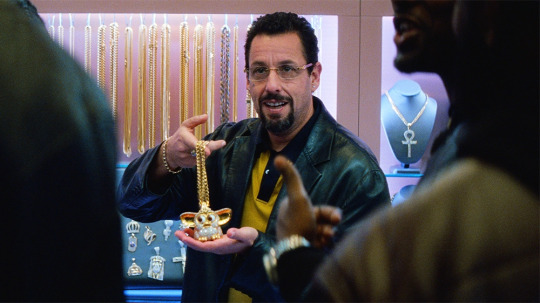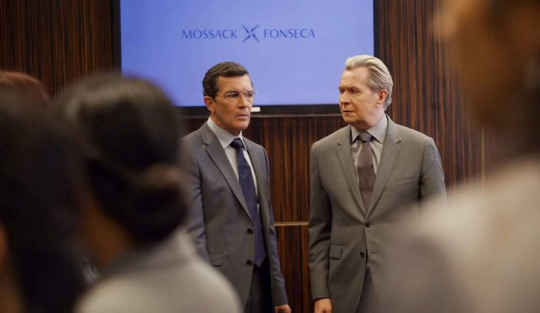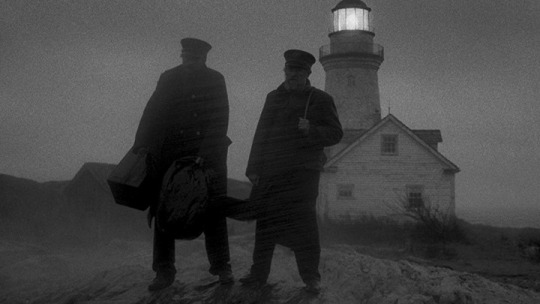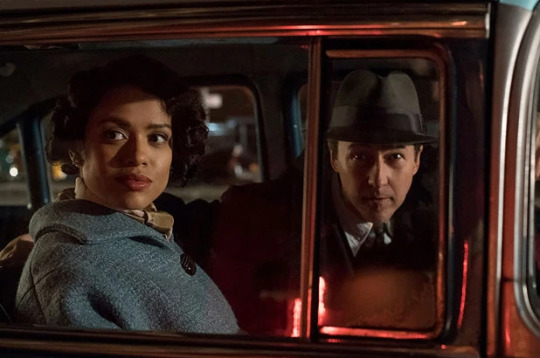#but he's in a cult that controls his entire life and his finances right? you absolute fucking morons lmfaooooo
Photo


#joshua bassett#emmy award winner joshua bassett#man's getting wacked at coachella#but he's in a cult that controls his entire life and his finances right? you absolute fucking morons lmfaooooo
84 notes
·
View notes
Text
So I’ve been playing a lot of skyrim lately, because it’s video game comfort food, and I decided it was time for my Redguard Dovahkiin to settle down. (Actually I specifically just wanted to be able to adopt some of the random orphans you meet because I felt guilty about them, but you need to be married before you can do that so that there’s someone at home to take care of the kids while you’re off galivanting).
So I travelled around a bit, chatting up likely looking npcs until I found one I both liked and didn’t feel guilty about marrying (I feel bad if I marry one of the warrior adventurer types, making them be a stay at home mum) and settled on an obnoxiously cheerful argonian called Shavee because her life was frankly shit, and I thought she’d probably be good with kids.
So off I go to Riften to the Temple of Mara to arrange the wedding. I book it in for the next day, realise I didn’t bring anything nice to wear, and spend the night before the wedding robbing every house in the city in the search for something to wear. Eventually decide everyone in Riften has terrible fashion sense and break down everything I stole into raw materials and use them to craft myself an outfit and some jewellery that i’m pretty happy with. I even carefully pick out my fanciest looking sword to wear.
(don’t know why I bothered, frankly, shavee turned up wearing a shirt covered in suspicious stains and weilding a pickaxe, it’s like she doesn’t even care about this marriage)
(also for comedy purposes, bear in mind I play with survival mods that mean my character needs to eat and sleep to live, and I literally spent the entire ingame night on this and forgot to eat and drink anything either and then just downed four bowls of wolf stew right before entering the temple so I didn’t starve during the ceremony. also I discovered during the wedding that I am dying of rockjoint, which I contracted from sleeping in a pile of hay on the floor of a skeever infested cave, so even being six foot tall and jacked can’t make up for the fact that I am exhausted, running a fever, and probably covered in wolf which I spilled because my joints are slowly atrophying, and even the fanciest clothes in the world aren’t going to cover that up)
so I enter the temple, and my finance is there, and Lydia my housecarl, and some random NPCs the game thinks are my friends because I did fetch quests for them
One of the random NPCs is Lisbet. Atfter I did her fetch quest, I then did another quest in which I discovered Lisbet is secretly a cannibal and part of a demonic cult that worships the daedric prince of decay by kidnapping priests, sacrificing them, and then eating their corpses. Raw. I think the raw meat is the sticking point for me here honestly.
I ultimately decided not to sacrifice the random priest to a daedric prince in exchange for one magic ring and all the raw human I could eat, because frankly, that doesn’t sound like much of a deal to me. I was expecting there to be some kind of dialogue choice where I could nope out at the last minute, but it turns out there isn’t one, so after they drugged the priest and tied him to the altar, I just got out my sword and started swinging.
I killed most of the cult (including the town butcher, because I had brought meat from him before and was extremely pissed off that he might have been secretly feeding me humans) but a couple of them got away, which I figured was fine because they weren’t trying to kill me.
Except it turns out, if any of them escape, then every time you see them in the future there’s a random chance that they’ll fly into a violent rage and try and murder you.
Lisbet is at my wedding. Lisbet decides that clearly me marrying this random argonian woman with two lines of dialogue is the happiest day of my life, and she cannot allow me that happiness, when I’ve taken so much from her.
So she tries to kill me. Only she can’t, because I’m stuck in a pre-rendered wedding animation, and also she’s sitting next to Lydia, my faithful retainer and owner of a really big axe.
It also turns out that Lisbet is essential, meaning she can be knocked unconcious but not actually killed because she’s needed for some quest or other. And the minute she wakes up from unconciousness, she tries to kill me again, so Lydia knocks her unconcious again, and I’m stuck, I can’t move, because I’m supposed to be in the wedding animation.
Except Shavee has, not unreasonably, see all this and decided that she doesn’t like me enough to risk getting murdered, and has done a runner, leaving me at the altar, but more importantly, leaving me trapped in a broken pre-rendered animation, so all I can do is stand there at the altar, staring at the space where my fiance was supposed to be, listening to the sounds of Lydia trying and failing to beat a cannibal to death behind me.
Okay, I think, clearly this wedding isn’t going to happen, I’m going to go for the registry office option and complete the wedding using the dev commands. I do this. The priest gives me a wedding ring, and I can finally move again. I chase after Shavee, who has an impressive turn of speed on her, and eventually catch up right by the city gates. I try to talk to her.
Apparently using the console has completed the wedding for me, but not for her, because she still only has the same 2 lines of dialogue she usually has.
Clearly this is working, I can’t leave my kids with someone who can only say 2 things and doesn’t even know she’s their mum, that’s irresponsible.
I try loading from inside the temple. I get the same problem.
Eventually I figure out that I need to use the dev controls to disable Lisbet’s entire existence in the universe.
Shavee and me get married. As the priest reads the vows, I stare at Shavee and wonder why she couldn’t even be bothered to put on a clean shirt. I wonder what kind of mother she’ll be.
Once the ceremony is over, and I’m happily married to the dirty green lizard of my dreams, and we’ve agreed that until I can make her recognise my extremely nice modded house exists I will share her single bed in the unheated flophouse in Windhelm she calls home, I re-enable Lisbet, because I’m worried I’ll forget if I leave it too long.
Fun fact about skyrim, it loads in quite a lot of npcs and objects by dropping them from the sky. I have no idea why this is the case, but it’s objectively the funniest way to load in objects.
I re-enable Lisbet. She falls from the sky, clips through the roof of the temple, and lands in the pew beside Lydia, stands up, draws a knife, and is immedately beaten unconcious.
I no longer care, because Shavee now has all the exciting new spouse-only romantic dialogue options like “Could you cook something for me” and “have you made any money lately”, and I know she’ll be a great mother.
I limp to the door of the temple, while around me the guests not involved in the Lydia-Lisbet murder cycle scream and duck for cover.
I open the door to the temple, immediately collapse and ragdoll down the steps, which is how I discover I am dying of rockjoint.
I limp to the orphanage down the street, adopt two kids, and then finally remember that I’m carrying garlic bread, which as we all know, cures all known illnesses.
When I emerge back into the street, full of the joys of motherhood and garlic bread, I find the town in disaray. Lydia is chasing Lisbet through the streets with an axe and a dragon is circling overhead, burning npcs to death. People are running for shelter, screaming, while the guards try to take down an entire dragon using only the worst bows and arrows in the game.
I decide that as a parent, I have to think of my own safety first and leave them to it.
I head out of the city, intent on returning home and figuring out why Shavee refuses to move in with me. A man hanging around the stables challenges me to a boxing match. For want of anything better to do, I agree.
Halfway through the fight he dodges at the wrong moment and I punch one of his horses in the head.
Two guards attack me while I desperately try to surrender. My kids will miss me, but I’m prepared to go to jail for my horse crimes, I’m an honest citizen. Also my horse crimes seem somewhat less important than the dragon.
The guards refuse to accept my surrender. I am stabbed to death. As I collapse in front of the indifferent horse, Lisbet exits the city, followed by Lydia. The last thing I see before I die is Lydia swinging her axe at Lisbet’s face.
#skyrim#spoilers#technically#although this game is a decade old and we all own at least two versions of it at this point#so i'm not sure it counts#long post
16K notes
·
View notes
Text
VICTORY! New Free File rules ban tax-prep firms from hiding their offerings, allow IRS to compete with them (a love-letter to Propublica)

Six months ago, Propublica began beating the drum about "Free File," a bizarre, corrupt arrangement between the IRS and the country's largest tax-prep firms that ended up costing the poorest people in America millions and millions of dollars, every single year.
The scam is one of those baroque, ultimately boring and complex stories that generally dies in the public imagination despite its urgency, because "boring and urgent" is the place where the worst people can do the worst things with the least consequences.
With that warning, here's a short summary: in most wealthy countries, the tax authority fills out your tax return for you, using the information your employer already has to file every time it pays your wages. If all the numbers look right to you, you just sign the bottom of the form and send it back, without paying a tax preparer. If, on the other hand, you want to claim extra deductions, or if something complicated is going on with your finances, you can throw away that free tax return and fill in a form from scratch, either on your own or with the help of a professional.
When Americans asked to have the same courtesy extended to them -- a move that would save the vast majority of Americans millions and millions of dollars they were currently paying to the likes of HR Block and Intuit/Turbotax, every single year of their entire working lives -- the tax-prep industry mobilized to kill the proposal. The industry (which is highly concentrated and dominated by a small handful of firms whose top execs have mostly done time in all their competitors' board rooms, making them into essentially one giant company whose different divisions have different shareholders) lobbied the IRS very hard, and won a resounding victory.
That victory is called "Free File." Under Free File, each tax prep company is required to serve a slice of working Americans with free, online tax-preparation. The arrangement was hailed as a victory for public-private partnerships, harnessing the efficiency of the private sector to perform this public duty of the state. Importantly, it meant that the IRS would not expand its headcount or budget, both of which had been slashed by successive right-wing presidents and their legislative enablers. The move was cheered by anti-tax extremists like Grover Nordquist, who was delighted by the "efficiency" of you saving a bunch of pieces of paper the government already had, typing them into an online form, and hoping that a company's website came up with the same calculations that the government had already made about your tax-bill.
Part of the Free File deal banned the IRS from creating a competing offer and it banned the IRS from advertising the existence of the program or telling people where to find the free offering.
As soon as the ink was dry on Free File, the tax-prep companies set about to sabotage it. Intuit -- a massive company led by a bizarre cult figure -- and its competitors hid their Free File offerings deep in their sites, and used the "robots.txt" system to instruct search engines to hide them. They took out search ads for the phrase "Free File" that directed users to paid offerings with the word "free" in their names. They created "Free File" systems that would make you go through hours of work entering your data before surprising you with a notice that you didn't qualify for Free File because you'd paid interest on a student loan (or some other normal thing) and then ask you if you wanted to pay to keep your work and finish your tax-return in the non-free system.
There's a simple name for this kind of activity: fraud.
But it was a fraud in plain sight, one that went on for years and years, and which created a stealth tax on the majority of Americans, which they had to remit not to the IRS, but to the tax-prep companies, which used the money to lobby to make it even harder to get away from handing them your money every year.
Enter Propublica, whose relentless reporting did the seemingly impossible: it made a complicated, boring important thing into something that millions of Americans cared about. Something they cared about so deeply that they actually managed to shame the IRS into taking action.
Remember, the IRS is an administrative agency, under the direct control of the Trump administration. That means its commander-in-chief is a guy who said dodging his taxes means that he's "smart." While the IRS has many good, hardworking staffers, it has also been demoralized and gutted by the right, who have convinced millions of poor people that it's somehow in their interests if it's easier for rich people to duck their taxes.
Despite all this, the IRS has enacted new Free File rules: first, these rules ban tax-prep companies from hiding their Free File offerings, and it bans them from using deceptive names for non-Free File offerings (Turbotax will no longer be allowed to confuse Americans by offering "Turbotax Free" -- which is not free -- as a competitor to "Turbotax Free File," which is).
Second, the rule allows the IRS to develop its own competing Free File product, which means that the government agency that already knows how much tax you owe will allow you to review its findings each year and then either challenge them, or simply click OK, without paying a single cent of tax to Intuit or HR Block, and free you from filling in lengthy, bureaucratic forms.
This outcome is nothing short of miraculous: it did not come as the result of Congressional action. It did not come as the result of the Trump administration's inattention (the release came out the same day that the Trump administration revised its tax rules to allow money launderers to retain billions in the loot they've stashed offshore).
It came about as the result of fucking journalism. Propublica wrote its way into a better world, with relentless, deep, accessible reporting that made this boring, important thing come to life.
I am sympathetic to the idea that talking about politics isn't doing politics, but that's not entirely true. Learning about what's going on and telling the people you know about it and getting them to tell others is part of how we make change. Propublica's excellent reporting wouldn't have mattered if people hadn't read it -- and talked about it.
And Propublica has done this repeatedly over the past year, deeply reporting on naked, grotesque corruption in ways so vivid and undeniable that they actually changed things, and not in some abstract, boring way, but in ways that matter to the immediate, lived experience of real people who had been brutalized and poisoned and jailed and mistreated with impunity, for years, until Propublica wrote about it.
Here are some examples, just from the stories I paid attention to this year (Propublica does so much good work that I can't manage to cover all of it):
* Reformed South Carolina's "magistrate judge" system that let "judges" with no legal background and less training than barbers sentence poor people (most of them Black) to prison in defiance of their constitutional rights;
* Dismantled Illinois's system of Quiet Rooms where special ed kids were put into solitary confinement, sometimes for days at a time;
* Shamed a "Christian" hospital into ending its practice of suing thousands of patients, many of them its own employees, for inability to pay their medical debts, and forcing it to jettison the private army of debt collectors it kept on its payroll.
* Killed an Illinois scam whereby affluent parents temporarily gave up custody of their own children so they could steal college grants earmarked for poor children;
* Got two Louisiana cops fired for encouraging people to murder Alexandria Ocasio-Cortez;
In addition, Propublica has done lots of reporting that hasn't yet created political transformations, but has changed our debate and laid the groundwork for change to come: called attention to the penniless hero of the ransomware epidemic; discredited a "walking polygraph" system used by police forces to frame their preferred suspects with sheer junk science; documented the link between pharma company bribes and doctors' prescribing; named every former lobbyist in the Trump administration; tracked every penny of the 2008 bailout money; documented Wayne LaPierre's self-dealing from the NRA's war-chests; documented the grifty conservative PACs that scammed millions out of scared old white people with racist Obama conspiracies and then kept the money for themselves; published a blockbuster story on the theft of southern Black families' ancestral lands through a legal grift called "heirs' property"; debunked the "aggression detection" mics being installed in America's classrooms; outed a "ransomware consultant" that was working with ransomware crooks to simply pay the ransom, while pretending that they were able to get you your files back without enriching the crooks who locked them up; named and shamed Alabama sheriffs who lost their re-election bids and then spent thousands of public dollars on frisbees or stole discretionary funds, or destroyed food earmarked for prisoners, or drilled holes in all the department computers' hard-drives in a form of "vindictive hazing"; followed the payday lender industry to a Trump hotel where it staged an annual conference, funneling millions to the president's personal accounts shortly before Trump reversed Obama's curbs on predatory lending; documented how TSA body-scanners single out Black women for humiliating, discriminatory hair-searches; revealed the secret history of wealthy people destroying the IRS's Global High Wealth Unit; and did outstanding work on the Sackler family, a group of billionaire opioid barons whose products kickstarted the opioid epidemic that has now claimed more American lives than the Vietnam war.
2019 was a dumpster-fire of a year and 2020 could be worse -- or it could be the dawn that breaks after our darkest hour. Finding Propublica's victory lap on Free File on New Year's Day was just the sunrise I needed to give me hope for the year to come. Sometimes, simply finding the truth and telling it to the people can make a change.
I'm a Propublica donor, and an avid reader. I admit that sometimes when I see that PP has published another 15,000-word expose, I am slightly dismayed at the thought that I'm about to lose 1-2 hours of my life to digesting and writing up the new story, but that dismay is always overcome by excitement at the thought that they have turned over a new rock and found something genuinely awful beneath it, and that, with all our help, we can sterilize that foetid sludge with blazing sunshine.
https://boingboing.net/2019/12/31/go-propublica-go.html
7K notes
·
View notes
Text
The Avatar of American Apartheid

The Trump years have revealed new truths about our relatives, neighbors, and friends. Or former friends. They have embraced the Avatar of American Apartheid.
We’ve had to open our eyes to the fact that some with whom we’ve happily shared parts of our lives stand revealed as racist to the core. Just fine with kidnapping and incarceration of immigrant children, forced family separations, and compulsory hysterectomies for some refugee women. OK with cancellation of decades of environmental regulation and climate change denial. OK with the negligent homicide that comprises the administration’s Covid-19 response. Enthused about deploying anonymized companies of military-style shock troops into the streets to “black bag” protesters and gas peaceful demonstrators exercising their First Amendment rights. Fully embracing the author of 20,000-plus lies, the serial sexual assaults, the mind-bending attacks on institutions great and small.
Enough. I am not fine with any of the above, nor am I fine with those who are.
Some reading this might protest, “But I’m not a racist. I have a black friend/co-worker/neighbor, etc.” The election of the first Black President led many believe that we had entered a “post-racial society.” In arguments elsewhere about structural racism in the US, my opponents have cited Obama’s election as proof that race issues were now over. Would that it were so. Trump’s election has revealed American Apartheid as it really is. Howard Zinn and others have brought the receipts to show American history is a procession of mass murder and colonial appropriation, an uncomfortable truth we remain unwilling to hear. And the resurgence of the hard edge of neo-confederate militia rage and racist taunts from Charlottesville to Michigan highlight the dark stain on America’s soul.
America is as divided as it was in the 1850s, in that tense time of conflict before the Civil War. The windfall of territories gained in the wake of the War with Mexico led to arguments about how those territories would be apportioned between slave states and free states. This led to the Compromise of 1850, a package of bills abolishing slavery in Washington DC, admission to the Union of California as a free state, and enhancement of the Fugitive Slave Act. This last required northern magistrates to act as agents and slavecatchers for southern slave-owners. The Compromise also provided for existing territories to be admitted as “slave” or “free” depending on the inhabitants’ electoral will. This led to “Bleeding Kansas,” those battles waged between roving bands of abolitionists and slaveholders, and where abolitionist John Brown made his bones. A period of widespread domestic terror.
Much has been made of the rural-urban divide, which is actually the 21st-century code for racism. In a recent National Review column, Rich Lowry observed that Trump is
“the foremost symbol of resistance to the overwhelming woke cultural tide that has swept along the media, academia, corporate America, Hollywood, professional sports, the big foundations, and almost everything in between,” including “the 1619 Project.”
Those who live in Trump country, where the KKK still has a relatively strong established presence, care little for what he does as long as it gives them license to hate liberals. The bigger the outrage, the louder the applause. Thus when Trump said, “he could shoot someone in the middle of Fifth Avenue...,” he was correct. Non-Trump-cult members who wonder “how can they still back Trump after this scandal or the next” fail to understand the underlying motivating factor of his support. It’s “fuck liberals.” Since according minorities their constitutionally-guaranteed rights would require an acknowledgement of
America’s actual history of racism, it is vigorously opposed by change-resistant conservatives determined to preserve the prerogatives of white entitlement.
Attempts to have a logical, rational conversation with Trumpists invariably reveals a person who believes their well-being depends upon avoiding things they’d rather not know. Or who will replace evidence with an alternative set of facts, generally created of whole cloth and breathed into life like a golem through repetition in right-wing media.
Consider QAnon, that hatchery of right-wing fucknuttery. Scratch their “Save the Children” marketing disguise and find revealed a narrative similar to that in the most influential anti-Jewish pamphlet of all time, “The Protocols of the Elders of Zion.” This was written by Russian anti-Jewish propagandists around 1902. Central to the mythology was the Blood Libel, which claimed that Jews kidnapped and slaughtered Christian children and drained their blood to mix in the dough for matzos consumed on Jewish holidays.
Consider the current package of accusations:
A secret cabal is taking over the world. They kidnap children, slaughter, and eat them to gain power from their blood. They control high positions in government, banks, international finance, the news media, and the church. They want to disarm the police. They promote homosexuality and pedophilia. They plan to mongrelize the white race so it will lose its essential power.
Thus are “The Protocols” repackaged by QAnon for Americans largely ignorant of history. Some have even suggested that QAnon is a Nazi cult, rebranded. What is appalling is that so many of our neighbors, relatives, and “friends” are so credulous.
As David Pollard has observed,
Trump’s support among white males remains basically unchanged over the past four years. This, not Republicans, is his real base — a clear majority of white males continue to support Trump, and it hasn’t been that long since they were the only people allowed to vote. Whites, and male whites moreso, have voted against every Democratic presidential candidate since the civil rights movement of the 1960s. And let’s be clear — I didn’t say, old white males. Young white males of all voting-age groups remain committed, almost as much as their older counterparts, to support Trump. Their entrance into the voting age cohorts has barely caused a ripple in the plurality of white males supporting Trump. That may surprise you until you consider that a disproportionate number (about half) of young voters are nonwhite (only a quarter of boomers are nonwhite), so looking at the entire youth cohort’s seemingly progressive attitudes obscures the reality that most young whites hew to the same extreme right-wing politics that the majority of old whites subscribe to; there’s just fewer of them.
We’ll leave it for you to consider that it means that a majority of white males of all ages are knowingly prepared to vote again for a blatantly corrupt candidate, a pathological liar, mentally deranged, uninformed, racist, sexist, utterly without principle, and increasingly untethered to reality. One whose “White House Science Office” takes credit for ‘ending’ the pandemic as infections mount to all-time highs.
But after 20,000 lies, who’s left to quibble?

“I love the poorly educated.” Donald J. Trump
Trump may lose the election, but white American males (and some true-believing females) aren’t going anywhere. They are the product of our systemically racist, sexist, patriarchal culture, born to preserve the prerogatives of white men of property while denying justice to the nonwhite, the native, the immigrant, the female, the “weak.” While they also control the courts, the banks, the legal system, and law enforcement, created in their likeness to support and preserve white male power, they are quick to snap into a well-practiced victim pose whenever challenged.
This past summer, members of the ShutDownDC movement protested at Chad Wolf’s home. They said,
“We know there are no career consequences for these men and women. We know there are no financial consequences for these men and women. We know there are no legal consequences for these men and women. We must make social consequences for these men and women. We must make it uncomfortable for them. We will not be good Germans. We will not be the people who sat by and watched our neighbors commit these atrocities and said nothing because their kids were home.”
The differences between both sides of a culture war are as strong as the conflict between “slave” and “free” in the 1850s, and are likewise framed in moral absolutes. No matter what happens on or after November 3, Trumpism remains with or without Trump. How will we live with its followers?. And whether or not there are “consequences” for their actions, the stink of Trump will never wash away, and what has been seen can’t be unseen. Nor will it be forgotten.
0 notes
Text
1
TOWARDS A THEORY OF A FEEDBACK LOOP OF GOOD VIBRATIONS!
(December 2019 - January 2020)
“The cult of competition must be replaced by the cult of solidarity and of sharing.” - Franco Berardi, Futurability
A knowing smile forms underneath my scarf when I pass the bike cop. I smile because I feel, deeply, that his days instilling terror from above us are numbered. Everything from the rusted, oozing “el” tracks to the fact that damn near the entire anti-war protest stopped to help when a younger marcher fell to the ground to the way you are looking at me right now is practically screaming out a song of love, life, and possibility. I allow this tingling, rushing feeling to fill me completely, from my calloused heels up to my swelling throat. I’m high from it. I have developed a new superpower. I can see hope everywhere now. I’m drunk with belief in us. Until experiencing it first hand, I might have been convinced that this level of hope was either dangerous, delusional, or - at the very least - unsustainable. That I’d fall into lazy paralysis and a misguided belief in the inevitability of a communist future. But that’s not really how hope works, I think.
Hope is not belief that something is actively happening (i.e. the end of global capitalism), nor is it rooted even in the odds of some potential outcome (i.e. the odds that ***** and I end up together forever). Hope flows out of the possible, indifferent of likelihood. “The future is dark, with a darkness as much of the womb as the grave” (Rebecca Solnit, Hope In The Dark). What comes next is still unwritten, and as long as that remains so, all possibilities are drawn into equivalence in their non-existence, their not-yet-happenedness. To say “anything is possible” is probably too much. As we have said elsewhere, the possible is inscribed in the present (Berardi). But I have never felt so sure that somewhere within the vast, twisting tree of the presently possible there lies at least a few better worlds. And signs seemingly affirming the existence of these possible worlds are blossoming around the globe and rebounding across its networks. Despite the neoliberal capitalists’ attempts to automate the course of history through financial trickery, ideology, and digitization, we are still here in the miserable present, and the future is just as not-here-yet, or “dark,” as ever.
I have come to believe that, at this late stage of capitalism, hope takes on meaning beyond the mere apprehension of a desirable possibility. It transcends its designation as an affective state and moves in the direction of duty and action, or praxis. The maturity of neoliberal capitalism, the pervasive twin logics of finance and digitization, and the social repercussions of existing within a near-Absolute network conjointly give rise to a moment where our hope for the abolition of the nightmarish “present state of things” can be carefully deployed as a weapon or tool for guiding latent possibility into The Really Existing. In the new economy, our sincere belief in the possibility of a future together founded upon ideals of love, global solidarity, and the broadest possible conception of the common good becomes the means of achieving the world we so clearly deserve.
After the neoliberal turn in the 1970’s and 80’s, there could be no doubt: financialization of the economy had fully decoupled the public good from private profit. Major financial institutions were now gambling against the people, at times against the state itself, and even against the very planet’s continued habitability. The economic foundation upon which emerges our society has been transformed by neoliberal capitalism into a depressing mixture of doubt, mistrust, bad faith (not to mention racialized violence, hyper-exploitation, and a politics of cynical inclusion utilizing a cybernetic panopticon). The pace of life quickened to keep up with a system that’s sole focus was short-term profit and ever faster circulation of capital. Drugs were invented to ensure workers’ ability to keep up with the new demands of an accelerating world. Work itself was transformed into an isolated, not to mention precarious, endeavor. Where there had once been factory floors there are now freelancers and independent contractors, where there had been careers there now only stands part-time or seasonal jobs, or “gigs.”
But more than just the physical terrain of work changed with the rise of neoliberalism; production itself was transformed. Today, “it is not use value but emotive or cultic value that plays a constitutive role in the economy of consumption… emotion comes to possess value for capitalism only when a switch to immaterial production occurs. Emotions have become a means of production only in our own times” (Byung-Chul Han, Psychopoltics). The means of production today is nebulous, hard to pin down, both within and without. Not just our personal property (a spare room, a car) but even a thought, a feeling, a relationship becomes a site of value creation. Everyone a means of production! We’re all now our own bosses, little self-contained enterprises, exploiting ourselves endlessly with every “like,” post, or reaction. As Han goes on to say later in the same chapter, “Emotions assume dimensions beyond the scope of use value. In so doing, they open up a field of consumption that is new and knows no limit.” Our emotional, inner selves, the sphere of our lives that used to be firmly our own despite our abysmal conditions as wage slaves has finally become raw material, food, for capital under neoliberalism. At the same time as our working lives have become unbearably precarious and anxiety appears to be the dominant feeling characterizing our moment, technologies are deployed that capture and weaponize that very anxiety against us for the sake of opening up new markets and expanding private profits.
All of this has given rise to an understandably paranoid, sad, lonely, and anxious population who are largely kept too busy and dejected to even take stock of their position or the rapid changes that have and continue to unfold around them, let alone begin organizing for a chance at a better future.
It is this sadness, isolation, exhaustion, and anxiety; this mistrust, bad faith, and simply the lack of faith in each other (or really much of anything) that constitutes the terrain upon which we will wage our revolution. The capitalists’ blind pursuit of speed and profit has sapped the life from, well, life. Our goal must be its prompt return.
“The front line no longer cuts through the middle of society; it now runs through each one of us…” -Tiqqun, This Is Not A Program
We currently lack the solidarity and technical capacity to break free of this system, but right this moment we do have the ability to begin to prefigure the type of world that comes next and we damn sure have the ability to share that vision with the world– the techno-capitalists made sure of that. In fact, the algorithmic particularities of the networked world make things more plausible or imaginable or possible the more they are seen as plausible or imaginable or possible. The possible is actually made more possible by appearing possible. Within the network, something is made more imaginable when it is imagined.
The networked world is constantly experiencing wild feedback loops (as well as the more insidious, controlled variety) where attention is concentrated, activity streamlined and spread, virally, and the impact of the initial action then exponentially exceeds any prior estimation based on the initial activity’s supposed or predicted potentiality.
Franco Berardi describes these feedback loops as “positive feedback” in his 2015 book, Heroes. He elaborates that,
“Contrary to negative feedback, which maintains stability in a dynamic system through a reduction of the exciting factors, positive feedback is a process in which the effects of a disturbance on a system result in an increase in the intensity of the factors which generate the disturbance. In other words: A produces more of B which in turn produces more of A. Thermal runaway, for instance, is a situation in which an increase in temperature provokes a further increase in temperature, often leading to a destructive result.”
Embodied in the vast architecture of the networked world there lies, not only the obvious apparatus of a Total surveillance and future counterrevolution, but a potential weapon for our side. In building a vast system of interlocking “social networks” governed by a logic of maximized engagement, the capitalists have inadvertently created a situation where possibility can be steered into being by a relatively small number of actors, in our case, revolutionary possibility.
For a decade now, we have unfortunately seen an accelerating positive feedback loop, a wave, fed by the contradictions inherent in American neoliberal capitalism, of horrifying racism mixed with extreme violence. This wave eventually brought us Trump, while globally, a similar phenomenon brought with it Brexit, BoJo, Viktor Orban, Bolsanaro, and most recently, a fascistic coup in Bolivia. But just as the ascent of neo-fascism seems all but guaranteed, we are now witnessing the explosive birth of what could be the beginnings of a global uprising against austerity and neoliberal capitalism. What began with the Gilets Jaunes in Paris, has spread to every corner of the inhabited world. Barricades are burning in Haiti, Mexico, Iraq, Lebanon, and Ecuador. We’ve seen techniques for resisting armed police invented and honed in Hong Kong (laser pointers, tear gas neutralization, umbrellas, etc.) adapted and deployed in Chile within days of each other. Just in the week of this essay’s writing we have seen a local movement for the abolition of public train and bus fares in Chile adopted in New York, and then Toronto, and then Chicago and Seattle. Protestors are bravely de-arrested in Hong Kong and immediately, the possibility of a refusal to be detained fans across the network. Within weeks, footage emerges in France during the general strike of the same: an assertive declination to being taken by the police, on the part of the people.
From every corner of the planet, images of dignified struggle and deep solidarity are being generated and shared, and the belief that another world is not just possible, but preferred, is accelerating through the network. The same is true of the idea that fighting the police is both plausible and necessary. The combination of a brutal, artificial scarcity imposed on the masses from above along with the previously unimaginable level of cognitive interconnectivity thanks to the internet and its social networks, has brought us to the cusp of what could legitimately be a revolutionary moment. And the artificial nature of that aforementioned scarcity is a reason for real confidence in ourselves.
This brings us, finally, to the feedback loop of good vibrations. It is possible, as Subcomandante Marcos once described, referring to the EZLN’s defiant existence as a loosely federated region of communes, that “a crack in history” is in the process of opening up. Capitalist Realism is very probably coming to an end. The contradictions inherent in neoliberal capitalism have become too great to simply smooth over with dreamwork and fentanyl. What comes now, be it fascism or, hopefully, something far more agreeable (Anarcho-communism? Library socialism? Green Stalinism?), is not yet decided. As we are seeing around the world, this is a global civil war. And as has been stated above, the terrain of this struggle is not just the places we work or live but the very feelings in our hearts and dreams in our minds. It is a war for our capacity to imagine and to love.
What is meant by the half tongue-in-cheek notion of a feedback loop of good vibrations is the recognition that our position as situated in a near-Total network can be leveraged towards the aim of steering something known as the Good Life into existence, or at least catalyse a new era of struggle for that Good Life. It is in some ways an inversion of pseudo-Marxist assumptions emerging out of the idea of base-superstructure, that posit culture as something always downstream from politics or economics. Financialization, digitization, and social networkification have conjointly created a situation where the cultural production of a society bleeds back into the political.
Financialization, meaning the increasing influence and size of the financial sector in relation to the overall composition of the economy, creates a pervasive logic of risk aversion, short-term gains, and general stupidity. Digitization prioritizes speed and thus linguistic simplicity and reproducibility. And social networkification results in a spectacular consolidation of global attention, incentivizes participation or inclusion, and turns what was previously known as the private sphere into public life. The confluence of these three forces is what gives us the potential for a feedback loop. Financialization first imbues the entire system with a preference for a “safe bet.” Financialization occuring in tandem with digitization means that this preference for a “safe bet” is algorithmically encoded into the (social) network. A “safe bet” in the era of social networkification is anything that captures human attention. This is where we see the system feedback into itself. Once tagged as a “safe bet,” the algorithm accelerates and concentrates attention within the network for maximum engagement and capture. The possible is actually made more possible by appearing possible.
Up until very recently, this “feedback loop” phenomenon was perhaps hard to spot because late into the era of Capitalist Realism, much of the cultural output of our society does little else than reaffirm the status quo, forming a negative feedback loop. This negative feedback loop has been alluded to by Mark Fisher as the “slow cancellation of the future” in his essays about cultural stagnation and anachronism. We have been stuck in a kind of flattened no-time. The end result is more of the same: limitless wealth for the few and deepening misery for the many. The effect is that financial capitalism becomes a self-regulated, stable system in that its continued existence is all that we are able to conceive of. In fact, it’s continued existence depends on this very dis-ability. It’s “stability” is only relative, obviously, as it is predicated on intensifying boom-bust cycles every 8-12 years and the destruction of the only life bearing planet we currently know of. Our inability to imagine anything beyond dystopia is what guarantees that the future will be a dystopia. That makes the first task for of our revolutionary effort relatively straightforward: imagine something else.
Literally anything else. This is not suggesting a praxis that is limited in its relevance to a specific style of post-capitalist formation. Communist utopia is not (and perhaps should never seek to be) the end of the political or problems, just the end of Capitalism, money, and scarcity. If you allow yourself, imagining utopia is easy. The communist horizon exists dormant within each of us, in our sociality as animals and in our capacity for love as humans. Our utopic vision is OUR vision. The next step is trickier: prefigure, embody, and evangelize that new world while stuck within this one and do so in such a way that leverages our position as unwillingly placed within a near Total network, towards our own, revolutionary ends (in some of the writing to follow this draft, we will use a variety of techniques, including and especially fiction, to describe what this could possibly look like).
There are two parts to the initial work I am referring specifically to here: the aforementioned “prefigurative” work, as well as “narrative” work. Narrative work is simply an attempt to tell a different story. It is when we dream of a better world and share that dream with another. It’s when we articulate a lack and thus a desire. It’s the work of stripping neoliberal capitalist ideology of its power. It’s when we reveal words like “pragmatic” and “sensible” and even “progressive” to be empty constructs and it is when we inject new life into words like “love” and “solidarity” and “trust.” Prefigurative work is more complicated. While this work typically consists of an attempt to embody a future world in the here and now, there is also an understanding that the embodiment will always be incomplete, and due to systemic limitations (the literal price of staying alive, more specifically) will often be unsustainable as well. Prefigurative actions are perhaps inherently performative. That doesn’t mean they can’t meet a real need or seek to deliver a real blow to capital. It is a flash vision of the normally hidden possibilities of other forms of life, uncovered for as long as we can hold them in stasis for common consideration.
But what does it mean for us to attempt this work in a time of immense interconnectivity and hyper-surveillance? What happens when nearly every action creates an image? Can prefigurative action be designed to achieve a certain resonance within the network? Can such an action go beyond the cynicism or doubt or bad faith of our system and exist as a monument to the ideals of a newly possible tomorrow? We already know that the local can overnight become the global thanks to the propensity of the social networks’ algorithms to accelerate. If social media has turned the private lives of individuals into public performances, can those multitudinous singularities, those infinite @’s, be arranged to represent and propagate new potentialities across the networked world?
It at least seems possible.
At long last, we arrive at what I hesitate to even call a theory, so for now let’s call it a hunch. The hunch is this: performative belief in the possibility of a better world actually makes that world more possible, specifically due to the networked, financialized system we currently struggle under.
“What is to be done?” Take care of one another and attempt to narrow the space capitalism carves out between us. The space between us and our better world and the space between each of us is one and the same.
An action creates an image. Every image creates a ripple. Every ripple can become a wave.
“Revolutionary movements do not spread by contamination but by resonance. Something that is constituted here resonates with the shock wave emitted by something constituted over there.… An insurrection is not like a plague or a forest fire — a linear process which spreads from place to place after an initial spark. It rather takes the shape of a music, whose focal points, though dispersed in time and space, succeed in imposing the rhythms of their own vibrations, always taking on more density.”
-The Invisible Committee, The Coming Insurrection
0 notes
Text
The Class of 2019
As always, just trying to catalog what I saw this year. Let’s do this shit.
1917 - Sam Mendes

I’ve never seen a war movie like this. I’ve never seen something that was so empty, so decayed and lifeless. Usually these things are about honor or brotherhood or whatever. This one was a horror movie. Gothic. Disturbing. And credit Dunkirk for helping everyone else realize that war movies should be told in the present tense.
Uncut Gems - Bennie and Josh Safdie

Good Time was better because it’s rawness was more painful. Because it’s kineticism was more sociological. Because it physically hurt to watch it. And because Robert Pattinson is a better actor than Adam Sandler (my sincere apologies). But these guys have figured out to a science how to film desperation and visceral consumption and need; they chronicle the ugliest parts of the mind and shoot them in the ugliest parts of New York.
Little Women - Greta Gerwig

Oh no, I’ve lost interest in writing these. Greta Gerwig is sharper than the average writer, and is going to get a lot of mileage writing interesting female characters, which will keep me occupied way longer than, for instance, JJ Abrams writing Strong Female characters so he gets to keep his third house. But look for this refrain whenever I see good movies that aren’t really made for me, my favorite character here was Timothee Chalamet, popping up sporadically to mack (suavely!) on all three sisters.
Bombshell - Jay Roach

Structurally it’s a little bit of a mess, but Megyn Kelly playing detective to an internal corporate scandal works surprisingly well.
The Two Popes - Fernando Meirelles

Some nitpicks: this movie engages with the child abuse a little bit, but it doesn’t offer any resolution--how could it? The scandal is ongoing, and has mired the legacy of Francis, the good Pope, just like it mired his predecessor’s, the bad one. And some of the dialogue is a little trite; was Benedict this much of a close-minded conservative? Was he really this bad at selling his own vision of the church? I also wonder if movies seem smaller now that we’re watching them all on our TVs. But mostly I thought this was fantastic. I love movies about ideas centered around conversation, and this one does it with so much humanism. The Pope as a role is one of the most complex, elite and fascinating people on the planet. This movie comes so much closer to showing that than I thought it would.
Marriage Story - Noah Baumbach

A cursory search of images from this movie for this post makes me realize how well it’s shot--maybe this really was meant to be his Scenes From a Marriage. It isn’t--he’s not a good enough director to ever be Bergman, he’s too burdened by the things he likes and thinks about, like hipster references and witty repartee--but this is the best movie of his I’ve ever seen. Funny, sharp, and if it isn’t a universal depiction of the disillusion of love, it’s empathetic and compassionate about two characters he likes and cares about. Adam Driver is the best actor working right now. Scarlett Johansson can’t quite keep up, but who could?
Ford v Ferrari - James Mangold

Fast cars and the manly men who build them. This could have been better--the writing is a little too beholden to a generic structure that’s beneath the A+ power of Matt Damon and Christian Bale, who are, straight up, two of our finest actors. Ideally this flick just lets these two dudes dick around for 150 minutes. But fuck man, this shit rocks.
The irishman - Martin Scorsese

This is the calm gangster movie made by a bunch of men who haven’t had to hustle in 30 years. Scorsese is a smart guy, so he probably knows that a de-aged Robert De Niro isn’t going to be as resonant as some young hotshot trying like hell to make a name for himself. It makes the movie weirdly low-stakes, and it only truly comes alive at the end, when De Niro is looking back on his life and facing his regrets, like a man in his 80s ought to be. But look, Scorsese is one of the best to ever do it, and gangster movies are where he lives. If this is mostly a retrospective on four of the best careers to ever track through Hollywood, and I sort of think it is, it’s still got ten scenes that will stand up against any of our man’s best.
The Laundromat - Steven Soderbergh

Steven Soderbergh does The Big Short. Turns out he’s also pretty good at it.
The Lighthouse - Robert Eggers

Robert Eggers is a formalist who understands that movies can be about whatever they want as long as they look good and sound good. This is a movie about, I think, madness. Just madness, just the idea of being isolated and going mad. If you’re wondering, like I was, if that’s enough of a theme to hang a whole movie on (I mean, these things are expensive), well, I think the point of this one is that it’s weird as fuck, it looks real good and it sounds real good.
Parasite - Bong Joon Ho

This movie is at it’s best when it’s at it’s weirdest. I like Bong most when he’s using a heightened absurdity to point out the ways in which our political systems are unforgivable.
Motherless Brooklyn - Edward Norton

I know it was in the book, but the Tourette’s syndrome of the main character seems to me like a postmodern tic, like making a straight noir in 2019 wasn’t enough for a studio that assumed audiences would need some kind of a 21st Century bent. I don’t think it adds much to the story, so I want it out there that this is just such a good fucking straight noir. I would personally finance it if they made like three of these a year.
High Flying Bird - Steven Soderbergh

Soderbergh is gonna need to get over his love affair with the iPhone camera--someone needs to remind him that movies can look a lot better than this--but this is the kind of movie that could have been and maybe started as a play. Things happen off camera and all you see is characters talking about them after the fact. But the writing is phenomenal. Snappy and smart. Maybe my favorite script of the year.
Joker - Todd Phillips

Upon further review, I think this movie never should have been made, but I do like it. I’m not a purist, frankly I think comic book movies are for nerds, but what makes the Joker powerful is that he doesn’t have a backstory. This movie isn’t good enough to justify giving him one, but it’s so ambiguous and strange that it doesn’t ruin anything either. I spent a lot of time wondering if the events of the movie actually happened, or if they were all in the protagonist’s head. I guess the answer is that it doesn’t really matter: if it all did happen it would destroy the throughline of the Nolan movies, and if it all didn’t it would make the movie kind of lame. Ultimately it’s a story about a discarded man who learns that evil gives him a control he never had before. That’s a heavy topic to make a movie about, and a better movie would have been heavier. But it’s still an interesting watch, and Joaquin Phoenix goes to the places the movie itself won’t.
Ad Astra - James Gray

I have nothing against pretentious movies. Some of my best friends are pretentious movies! But if you’re going to be as solemn and portentous as this one is, I think your thesis needs to be a little more insightful than that love is important. This movie looks fantastic. It’s got killer monkeys in it, and an Apocalypse Now meets 2001 pedigree. It should have been a lot better.
It Chapter Two - Andy Muschietti

Ugh, this one was not good. The writing is pretty bad, storylines open up and fizzle out without going anywhere, the structure is simple to the point of being lazy. The first one was so good, and this is just a crappy cash-in. Oh well.
Once Upon a Time...in Hollywood - Quentin Tarantino

Look, Tarantino is probably my favorite director. Pulp Fiction is the movie that first taught me to love movies, and he’s never in his life made an artistic choice that I didn’t intuitively understand. I don’t think anyone else has justified their otherworldly self-confidence more than he has. If other directors are more artistically or technically accomplished, I’d struggle to find anyone who better put the thoughts and images in their brain onto celluloid better than him. If this had been made by some new hotshot named Chris Anderson or something, I’m buying a poster of it and telling everyone who will listen about the breakout auteur of the decade. But for the first time in my entire life, I wondered what Tarantino’s point was. Why did he make this movie? The highlight, for me, is Leonardo DiCaprio, who since Django Unchained has apparently realized that he’s at his best when he’s hamming it up and having a blast.
Midsommar - Ari Aster

Two movies in, Ari Aster has mastered tone. My man is in control of his movie from frame one, and the result is that his stuff feels smart. This one wasn’t as wild or unexpected as Hereditary--in fact the most surprising thing about it is that it really isn’t surprising at all; it’s about a sinister cult in northern Sweden, and it hits all the beats that tagline would suggest. But that’s not the same as saying it’s predictable--he still has a gift for ultraviolence, and he hovers in a space that forces you to prepare yourself for anything. My only complaint is that I wish it had been more of a mindfuck. It’s ultimately a simpler movie than you might hope for. But this guy isn’t going anywhere. He’ll be on the prestige list for as long as he wants.
The Perfection - Richard Shepard

If Allison Williams is going to make a career out of deconstructing overachieving white girls, I don’t want it to get lost that she is also insanely hot. Like, just so hot. Anyway, this is one hell of a grindhouse flick, all the way down to being a little less pleasant than you’d expect or even really want. Watch it on a Saturday afternoon and feel a little queasy afterwards.
Avengers: Endgame - Anthony and Joe Russo

Look, I don’t know what to say to you if you take these movies seriously. You probably wouldn’t like my blog anyway. I thought this was a really good ride. If you have problems with the plot holes or the character inconsistencies, I might recommend catching something other than the final installments of global franchises that are obligated to gross two billion dollars.
Us - Jordan Peele

If Jordan Peele were a quarterback he’d be Deshaun Watson--a top level talent who’s going to be relevant for at least the next ten years. Get Out was a statement, a cheap little movie from one half of a decent sketch comedy show that blew the doors off the tavern and walked in so much smarter and better than anyone was prepared for. But right now, sitting on my couch, Us is the movie I want to watch. It was never going to be as surprising as Get Out because this time out our expectations were so much higher. But this is the kind of movie I ultimately want him to make his fortune with--funny, scary, worth talking about afterwards. A horror movie from a guy with interesting ideas who’s been given the keys to do whatever he wants.
Glass - M. Night Shyamalan

I caught this bad boy in January. At the time I figured there was no way I’d remember anything about it by the end of the year. I don’t.
0 notes
Video
youtube
Rick Wilson - Being an Anti-Trump Conservative and “Running Against the ...
COMMENTARY:
I'm what you might call a Mitt Romney-Kihine Wiley Republican, in constrast to Joe McCarthy Conservatives like Rick Wilson and the Lincoln Project.
The reason why Nixon resigned is because he was guilty. This was back in the day when there was adult leadership running the GOP, the Eisenhower-Romney Republicans that collaborated with FDR to create an economic engine of historic success that put a man on the moon. Nixon's foreign policy and his collaboration with Daniel Patrick Moynihan created legislative structures conceived to capture the global synergies wave from Apollo 11 to create the financial trajectory necessary for the next 100 years of exploiting that public investment and to put the process in motion to transform the Military-Industrial Complex to the Aerospace-Entrepreneurial Matrix required to optimize the social benefits, globally.
In 1971, when I got back from Vietnam, I was an Eisenhower-Romney Republican, bred and born. I'm an Army brat and Mit Romney is the last of the Eisenhower-Will Rogers Republicans standing as an elected federal officer. He voted to convict on one count. That was the same count as compelled Nixon to resign. Whatever else Mit Romney votes for forever will reflect his moral poise in regards to "Duty" as defined by the binding of Isaac.
Now, as far as I am concerned, Romney has given Nasty Pelosi a green light to convene an inquiry into impeachment focused on the treason Donald John Trump committed to get elected and continues to commit as a matter of his Business Best Practices of his patented lie, cheat and steal "Art of the Deal" crime family business model as demonstrated in his "perfect phone call". The issue isn't the discussion he and Zelensky but all the foreign associates of the Trump organization Rudy has flushed out in his efforts to get the goods on Hunter Biden. It is exactly this sort of subversive moral equivalence neither Nixon nor Romney could abide.
The Eisenhower Romney Republicans dominated the Nixon White House in terms of policy. I mean, I went to Vietnam to do my part in whatever these guys were trying to do to take advantage of the success of the Kennan Containment Strategy by the time Nixon took over. In 1965, that strategy had evolved into a battle of attrition against the Soviet economy by proxy and, by 1971, the Soviets called it off.
I associate the adult leadership of the Nixon White House to Ray Price, who was a neighborhood friend from 1973 until 1981 and my understanding of what I call Nixon's Peaceful Structures and the Nixon-Moynihan-Carter precursor to the Green New Deal, Affirmative Action begins with him, but my capacity to grok in fullness the opportunity to take America to Mars that is being fucked up by the other side of the Nixon White House I associate with "Pitchfork Pat" Buchanan, the leading edge of the Joe McCarthy Conservative apparatik like Rick Wilson and Roger Stone and Steve Bannon, the Plumbers. Crooked FBI agents and spooks who still believed the Bay of Pigs made sense. They hadn't got the memo that the Marshall Plan was the leading edge of American moral dominance currently represented personally by Mitt Romney.
The Eisenhower-Romney Republicans and the Joe McCarthy Republicans (which, by 1972, included the 13% of the vote that had gone to George Wallace and maintained in place by the white supremacist Southern Strategy, represented divergent agendas. Nixon's core legislative design is oriented in perfect alignment with the Presidential Critical Path set into motion by Washington and amplified by each president before him, but, in particular, General Eisenhower. Mitt Romney is the sole possessor of the flame of progressive Republican stewardship made operational in the critical path of Nixon's Peaceful Structures and Affirmative Action.
The Joe McCarthy Conservatives have been on a radically divergent trajectory since William F. Buckley, Jr., published the Sharon Statement in 1960 and established a farm system for training and deploying crypto-Nazi agents of the treason represented by the motives of the slave holders of the southern rebellion. Basically, the Republicans who have voted to prevent impeachment and to acquit of the prima facia case Mitt Romney voted to convict, have voted to overturn the verdict at Appomattox. And they have been herded into conformity by 60 years of the YAF enforcment.
Now, at present, the vast cadre of Joe McCarthy Conservative operatives like Rick Wilson and the Lincoln Project have all been elite players in that political agenda and been in a position to punish RINO's like Mitt Romney when they needed to get something done, like invade Panama, to take control of the banks, and invade Iraq, to take control of the oil in the region. A big reason why things are so fucked up in the Middle East begins with the Joe McCarthy Conservatives in the CIA who thought overthrowing a democratically elected government in Tehran and replacing it with a puppet government based on Donald John Trump's Harvard Business model leadership model that Mike Pompeo finds so charming and John Bolton built his career upon to push his Henry Cabot Lodge Copperhead America First white supremanicst nativism. And Joe McCarthy Conservatives like Rick Wilson and David Brooks (not David Brock) and Bill Kristol and Robert Kagan act as subversive shape-shifters, taking the bit in their mouth when they are running the Reagan cult of personality for partisan gain and criminal intent, and then fading into the media woodwork until their second act arrives. What is pissing off the Rick Wilson's and George F. Will's at the core of the Deplorables is that Donald John Trump has hijacked the Reagan Cult of Personality, lock, stock and barrel, and they,the former masters of the Joe McCarthy Conservative Free Market RICO Fascism lobby, have been made RINOs by Jared Kushner, Ivanka, Kellyanne Conway and Lindsey Graham because they give better oral sex.
What is important for Clinton voters to understand is that everybody associated with the Joe McCarthy Conservatives since 1981 are up to their eyeballs in exacltly the same treason Donald John Trump committed to get elected. Pat Bushanan brags about trying to sabotage Nixon's China Policy on Air Force One on the way to the Mao-Nixon Leaky Umbrella Summit, an imporant structure at the leading edge of the Marshall Plan manifest in Nixon's Peaceful Structures. John Bolton's entire political career has been devoted to blowing up the Marshall Plan as a piece with ending Social Security. This is what "starving the beast" and "deconstructing the administrative state" is all about.
Just to make sure we are talking about the same thing, John Wilkes Booth and Jefferson Davis committed treason. Jefferson Davis wanted to replace the life, liberty and the pursuit of justice theory of the US Constitution with his State's Rights theory of labor, property and the means of production that sustained the conceit that Thomas Jefferson's property rights were superior to Sally Hemings's human rights, that Pharaoh had a better idea than Moses.
And that's the core technology of William F. Buckley, Jr.'s Sharon Statement and the Senate Republican vote to aquit for treason is an intentional goal of the Joe McCarthy Conservatives that Rush Limbaugh just received a Medal of Freedom for promoting.
Mitt Romney is the anti-Rush Limbaugh and, as a consequence, a RINO in the Joseph Welch at. the Army-McCarthy Hearings kind of way
The connection between Kihinde Wiley and Richard Nixon is reflected in the precursor to the Green New Deal, Affirmative Action. Nixon and Daniel Patrick Moynihan shared a common embrace of the values contained in 2001: A Space Odyssey and Putney Swope. Both of them recognized the universal entrepreneurial impulse nurtured by American community in the constitutional capitalism the Joe McCarthy Conservatives have been trying to replace with the Free Market RICO Fascism of Supply Side economics since 1981. Crypto-Nazis like Rick Wilson, Tucker Carlson and Rush Limbaugh have been the anti-entrepreurial saboteurs of Nixon's critical path. They are corporate men who believe they are sovereign persons able to disperse anti-constitutional disinformation with the same hyper-masculine righteousness Mike Pompeo unloads as a signiture leadership trait.
Affirmative Action was aimed at the American middle class as the most successful economic innovation in history in order to hook into the incredible wave of global aspiration Apollo 11 unleashed. Silicon Valley is just one aritfact of the benefits from the global synergies wave Apollo 11 set into motiong that Affirmative Action as designed to catch. Watergate only stalled it and Stuart Eizenstadt figured out exactly how to make it work and, by September 1980, Affirmative Action was beginning to get some real traction specifically because of projects like the Trump Tower, which got its financing from the Affirmative Action guaratees to The Equitable. And when the Joe McCarthy Conservative assholes who came to town with Reagan arrived, they began immediately to tear out all those capacities to employ capitalism to fix social problems at the grass roots of the economy with all the passion and righteousness Rick Wilson now opposes Donald John Trump.
In terms of treason and treachery, the difference between the Reagan cult of personality and the Trump cult of personality, is one of degree and not of kind. Assholes like Rick Wilson, George and Kellyanne Conway and Rush Limbaugh have been trying to blow up everything Eisenhower-Romney Republicans like Mitt Romney and me have been trying to accomplish their entire career and the call us RINOs?
0 notes
Text
Chairman and Managing Operational CEO (Global Legal Authority Quasi-Judicial)
(Finance, planning, industry and foreign trade portfolios) Private
Head of Human Resources Finance and People and Global Head of Corporate Responsibility
Investments/Contracts/Superior/Technically Competent and Right-Hand Men
NGO - (Finance, planning, industry and foreign trade portfolios) Private
To my Pharma Hubs, Technology Hubs, Social Creative/Personal Hub, My Private Hubs, My Financial Hubs and my Health and Wellbeing/Scientific Hubs, Legal and Innovation Hubs, Hinterland Hub and to my Eastern Caribbean Hub, Linguistic/Psychology Hub, to my beloved additions and to my Institutions and Partners and Team, Pool of Potential Personal Assistants and Private Secretaries and Business Managers and also to my Fitness Hub which is an extension of my Health and Wellbeing Hub and not to forget my beloved Brooklyn Hub and my Wine/Adviser Hub, Influential Legal Cashier, Strategic Partnerships, STATEMENT OF INTENT, MY WEALTH FUND AND PERSONAL ATTORNEY and PROPERTY EXPERT GUY and THE ATTACHMENT AND MY PERSONAL BOARDROOM AND MY CHIEF STRATEGY AND INNOVATION OFFICER. The core founding support regions of this Network and Global Structure.
All Options remain on the Table applying the finishing touches to our Genius and my Genius and the Network and this Global Structure Genius. DRAFT
II am the richest man in some regions and it is important that they mentioned it in the context of which it was mentioned not for the cult of it, but added value. My friend who was excommunicated because he challenged mediocrity can now say he is vindicated as a result of the swinging of the pendulum. His future and the others future will now be preserved because the requisite particulars will get to me for perusal, the right thing will now be done, though at a high cost to him and other, they can now stand assured that the mediocrity of the past will not be allowed to continue as a result of my leadership, principles, methods, values and our collective further responsibility to the environment. He can now be please that the real reason he bore those cost will not be in vein, the divine impetus and the intellectual impetus was built not on sinking sand, but the correct Intellectual foundation that would stand him as part of this family for thousand of years to come. We will win for family, we will win for Integrity, we will win for credibility, we will win for shared prosperity, we will win fro Intellect and we will deliver the user friendly environment that will be conducive to inward and outward investment and that will guarantee a return for you and your future, your children futures, your grand children future and the future for all that live within the walls of the Global Structure and will with a clean sweep guarantee the continuation of this Network as the Economic Intellectual Fuel to any Economy for thousands of years to comer. It's time for you to live your best life! Those corroborating details will reach me with the Global Tool kits for perusal as a matter of urgency.
Two years of hard work and two year of difficult times will soon be paid off. Those of you who have been working for two years without a salary will now be paid within the first week of perusal. Those independent intellect that was on display, is welcome news, because it shows that even though the work of the Network hasn't been rolled out and the delivery of the Network and the Global Structure has not been done, Intellect is already winning. This the experts pointed to, intellect cannot be undermined or cannot be toppled. The Network particulars will be delivered to me and the entire Network will be delivered to me. The particulars in relation to the Strategic Partnerships and the Hubs et al will be delivered to me personally and as a matter of urgency. This Network and this Global Structure under my leadership “ will not create a picture of mixed signals” and the regime from the Statement of Intent under my leadership will will consistently tightened the screws against mediocrity, the appearance of undermining the regimes or Network credibility and further the imputing of anyone integrity. Those repressive measure that was used previously will be a thing of the pass. With my leadership we will not allow those at any cost to tinged the walls of the Network or Global Structure and further the environment of itself will not make room for mediocrity and like it is doing already, not tolerating mediocrity. Let's just take ca moment and think what the environment will be like once I roll out the Network and the Global Structure and our suite of Upstream Intellectual Initiatives and Programs Globally.
There is no reason to doubt the work and the delivery of the Network or the delivery of the Global Structure or the delivery of the Statement of Intent or the delivery of the Strategic Partnerships and the great predictions that are being made because those decisions taken at the very top and based on scientific methods, so there is also no reason to doubt that the decisions taken by me wouldn't be supported by the work that will be carried out by the Network on behalf of the attachment, where Gary is already saturated in the most highly favoured, sort of like a God like Intellectual figure.” That isn't over night, he Gary came from the same group of foreign affairs Collegiate of Intellectual of which will be explained in his biography or the essay that will be splashed all over those value added print media. The good things that are happening will not be defined as good, it is a sign to us that the building blocks and the scientific Intellectual mechanism does work. The Network and Gary very smart I must add, those Upstream Suite of Intellectual Initiatives will undoubtedly after rigorous scientific methods applied, deliver te environment that will allow for the success of being in control of your destiny which is a conduit for the real delivery that will be defined by yourself, as quoted from the bible, good things are spoken of thee, and good things are perceived of thee and good things are evident by thee. Every Intellect will walk in the cool of the day. So said an Expert.
It would have been folly of the Network and the supporters of Gary and his CEO and Statement of Intent and hubs et al and Strategic Partnerships to have gone into this believing smooth sailing. For many years, mediocrity and nonsense were perceived to be intellect and foundation people. The game changes, is that Gary actually and literally is the legal owner of these suite of Companies and he is also the legal owner of the Intellectual Capacity. Foundation man, infrastructure man and cannot be at fault to be so defined and rightly so Quasi Judicial Global Legal Authority. The region being defined or predicted to be the focus and most prominent, wasn't so defined by Gary, it is so because the international Institution said it is so poised to be prominent. Gary however is the right leader, saturated with the correct Intellectual Capacity and has a legal mandate to lead not only that region, but in all those places where the strategic officers are based. Said one international expert. What we will not continue to do, is refer to those mediocrity sympathisers whose main aim is to turn added value into burdens. Those particulars and details and corroborating tool kits will be delivered to me as a matter of urgency for perusal. We have work to do and we must move forward with focus and not make room for the daily nonsense of those that will never do anything that can augur well for humanity or a further responsibility to the environment.
The story is well known, we are the Gold Standard together we are achieving and succeeding. We are the authority on Intellect, we are the Jobs people, we are the authority on the growth and Profitability strategy, and we are the authority on Intellect. It is my Companies both private and public and that of my partners and Institution and Team and Intellectuals everywhere that possess that tried and tested model of balance and the Big Brain Gain Strategy. We are the pool of Intellectual Capacity. Intellectuals lets deliver the Group Property Portfolio and the Group Property offices and all the directive and particulars.
I love, I love you, I love you, I love you! For the first time since the financial crisis, a formidable model!
Truth to Tell, I will marry you, Tell it First, I will Marry you and Tell it like it is; this family will deliver for Education, This family will deliver for Intellect, this family will Top -Up that pool of Intellectual Capacity, this family will deliver on Legal Authority. This family does not assume. It’s time to live your best life! Let’s deliver for media and let’s deliver for print media and social media. We have a rendezvous with and an occasion to deliver the Fire and Brimstone address.
It is Estimated that in her lifetime, a woman views/use her Intellectual Capacity over a million times. In this Family, we ensure that at every use, it is both full capacity correct and a pleasurable experience for the user and stakeholders.
QUASI JUDICIAL
Chairman and Managing Operational CEO (Global Legal Authority Quasi-Judicial)
(Finance, planning, industry and foreign trade portfolios) Private
Head of Human Resources Finance and People and Global Head of Corporate Responsibility
QUASI JUDICIAL
0 notes
Text
Everything You Were Taught about Slavery is a Lie
“While slavery was common to all civilizations, only one civilization developed a moral revulsion against it — Western civilization.”-Thomas Sowell
The American educational system barely teaches history anymore outside of the two defining moments in world history—American slavery and the march to Black Civil Rights, and the Holocaust. Perhaps unsurprisingly, the fact that most of the marchers attempting to cross the Edmund Pettus Bridge that fateful day on March 7th, 1965 in Selma, Alabama and again on the 9th were actually paid to do so—$100 a head (and you thought it was just George Soros who rented protesters!). Slavery, the defining characteristic of antebellum American society and the sole cause of the Civil War, was unique to the country, and a moral stain, like the Holocaust in Germany, so deep that it can never be washed away but for the entire nation to cease to exist, at least according to the history textbooks and the general Cult-Marx zeitgeist.
(function(w,d,s,i){w.ldAdInit=w.ldAdInit||[];w.ldAdInit.push({slot:10817585113717094,size:[0, 0],id:"ld-7788-6480"});if(!d.getElementById(i)){var j=d.createElement(s),p=d.getElementsByTagName(s)[0];j.async=true;j.src="//cdn2.lockerdomecdn.com/_js/ajs.js";j.id=i;p.parentNode.insertBefore(j,p);}})(window,document,"script","ld-ajs");
Yet most serious historians agree that approximately two-thirds of all Whites came to the colonies in some form of bondage. Over one million Europeans were held as slaves from the 1530s through the 1780s in Africa, and hundreds of thousands were kept as slaves by the Ottomans in Eastern Europe and Asia. (John Smith, for instance, had been a slave of the Ottomans before he obtained freedom and helped colonize Virginia.) In 1650, more English were enslaved in Africa than Africans enslaved in English colonies. Even as late as the early nineteenth century, United States citizens were enslaved in North Africa. Of the Africans who arrived in the New World, no more than 6 percent went to the Northern Hemisphere—virtually all of them went to South America. That trade was controlled almost exclusively by Jews. The Dutch West India Company, for example, was heavily financed by Jews, and a number of Jews relocated to Brazil to conduct business transactions there, chief among them the trafficking of slaves.
Slavery was practiced in the Americas before Columbus arrived. Many tribes would cut off a slave’s foot so they could not escape. Slavery, indeed, has been a fixture of human life since humans began to organize into sedentary societies (and probably before). It was really only the moral agonizing of European Christians over its existence that slavery was finally abolished in most parts of the globe. Slave-owning, as it was practiced in the United States, was not limited to only Whites, either. As Barbara Krauthamer helpfully points out in her book Black Slaves, Indian Masters: Slavery, Emancipation, and Citizenship in the Native American South:
From the late eighteenth century through the end of the Civil War, Choctaw and Chickasaw Indians bought, sold, and owned Africans and African Americans as slaves, a fact that persisted after the tribes’ removal from the Deep South to Indian Territory. The tribes formulated racial and gender ideologies that justified this practice and marginalized free Black people in the Indian nations well after the Civil War and slavery had ended.
About 28% of free Blacks owned Black slaves compared to roughly 1.4% of White owners of Black slaves according to the 1860 US Census. The first legal slave owner in the United States was a Black man named Anthony Johnson. Quoting Henry Louis Gates, Jr.:
In a fascinating essay reviewing this controversy, R. Halliburton shows that free Black people have owned slaves “in each of the thirteen original states and later in every state that countenanced slavery,” at least since Anthony Johnson and his wife Mary went to court in Virginia in 1654 to obtain the services of their indentured servant, a Black man, John Castor, for life. And for a time, free Black people could even “own” the services of White indentured servants in Virginia as well. Free Blacks owned slaves in Boston by 1724 and in Connecticut by 1783; by 1790, 48 Black people in Maryland owned 143 slaves. One particularly notorious Black Maryland farmer named Nat Butler “regularly purchased and sold Negroes for the Southern trade,” Halliburton wrote.
The Chinese were importing slaves from Africa over one thousand years ago. Exempt from the recency bias by dint of the fact that they’re not White and that it does not align with the present ideology, Saudi Arabia and Yemen only outlawed slavery in 1962. Slavery is still common practice across the African continent from the open-air slave auctions in Libya to the enslavement by Muslims of Christian slaves in countries such as Mali and Mauritania. Qatar is literally building their World Cup stadium with slave labor.
Islamic slavery was historically extremely brutal. Most of the slaves (approximately 80%) sent east died, and the male slaves were castrated. As Dr. Bill Warner informs:
The relationship between Blacks and slavery is ironic. A standard approach of Islam to Blacks is that Christianity is the religion of the White man and Islam is the natural religion of the Black man. They add that Mohammed’s second convert was a Black slave, Bilal, who was Mohammed’s companion and the first muezzin (the man who calls to prayer)… Mohammed had many Black slaves in his household. One of his slaves was a Black man called, Anjasha. Mohammed owned Black slaves. It is that simple. His favorite wife, the child Aisha, had a Black slave. But to be fair to Mohammed, he was not a racist about slavery. He enslaved Arabs, Africans, and Greeks. Islam enslaves all kafirs, independent of race… Mohammed used his robe to shield Aisha, so she could watch Black slaves perform a martial arts routine in the mosque. The Hadith tells of a prophecy about a Black man bringing evil to Islam. Black men were prophesized to destroy the Kabah. But when Muslims preach to Blacks they only say that Islam’s first muezzin was a Black man. They don’t tell the rest of the story.
Warner continues:
The criticism of Whites because of their being involved in slavery is standard fare in the media and the universities. Try to find a university that even teaches about the killing of 120,000,000 Africans for Muslims to profit from the 24,000,000 slaves. Blacks define themselves on the basis of slavery. They will not go beyond the White, Christian version of slavery. There is only one theory of history in the Black community—the West African Limited Edition version of history. Blacks will not admit the broad scope of slave history. Hindu slavery? It never happened. White and European slavery? It never happened. Slavery on the East coast of Africa? It never happened. A massive slave trade through the Sahara into North Africa? It never happened. Black, eunuchs at the Medina mosque? It never happened. This incomplete history of slavery is what the taxpayer funds in the state universities. How can Black leaders ignore Islam’s sacred violence in Africa? Why aren’t the Black columnists, writers, professors, or ministers speaking out? They are ignorant and in total denial. They are the molested children of Islam. Blacks are dhimmis and serve Islam with their silence. There is a deep fear of Islam that makes them overlook and placate Islam. Arabs are the masters of Blacks. One thing Whites and Blacks have in common is that their ancestors were enslaved by Islam, and both are too ignorant to know it.
It’s not just the Muslims who’ve been instrumental in the global enslavement and subjugation of Blacks and Whites alike; Jews have been active in the slave trade for millennia, from the Orient to the Occident. Using their massive fortunes accrued from usury during the Middle Ages, Jews were able to purchase an astounding 78% of all Trans-Atlantic slave trading vessels. Over 75% of Jewish families in Charleston, South Carolina; Richmond, Virginia; and Savannah, Georgia, owned slaves. Approximately 40% of all Jewish households in the United States owned at least one slave. The first slave owner in North America—Anthony Johnson—used a Jewish merchant named Samuel Goldsmith as corroborating testimony; thus, the institution of slavery in what would become the United States was legally enshrined on behalf of a Black man (Johnson) and a Jewish man (Goldsmith).
David Levy Yulee, the first Jew elected to the US Senate, was a plantation owner and slaveholder. Judah P. Benjamin, the second Jew elected to the US Senate, was also a wealthy plantation owner and slaveholder—and was one of the principal actors behind the actor John Wilkes Boothe’s assassination of President Lincoln; fearing prosecution, Benjamin was sponsored by Jewish Lord Rothschild to flee to the UK where he became a barrister and eventually Queen’s Counsel in 1872 while the Jewish Prime Minister Benjamin Disraeli was in office. John Wilkes Boothe’s father, by the way, was Jewish. Monsanto was founded by John Francis Queeny, husband of Olga Monsanto, who was the daughter of Emmanuel Monsanto, a descendant of one of the South’s largest slave-trading families. The vast majority of the land-swindles of the newly-freed slaves that went on after the Civil War were committed by Jews; most of the carpet-baggers unfairly maligned as “Yankees” were also—and often the same—Jews. The KKK was originally founded to combat this exploitation but quickly lost its way and began terrorizing Blacks.
The institution of slavery in the United States is certainly an important part of our history and was one of the primary sources of tension between the North and the South—but it was far from the only one. Further, the claim that Blacks “built this country” through their labor as slaves is empirically false. The true impact of African slavery on the construction of America is negligible. Not even the profits of slavery had any real hand in the developing of the nation, as less than 1% of the total capital invested during the period of industrialization between 1760 and 1810 came from slave traders. Slavery was not particularly central to the American experience past the period of White indentured servitude and de facto slavery, though Black slavery did form part of the Jewish “portfolio” of assets, which also came to include bootlegging during Prohibition, various snake oil products, and as the 20th century progressed the virtually complete domination of media and entertainment as well as financial capital.
(function(w,d,s,i){w.ldAdInit=w.ldAdInit||[];w.ldAdInit.push({slot:10817587730962790,size:[0, 0],id:"ld-5979-7226"});if(!d.getElementById(i)){var j=d.createElement(s),p=d.getElementsByTagName(s)[0];j.async=true;j.src="//cdn2.lockerdomecdn.com/_js/ajs.js";j.id=i;p.parentNode.insertBefore(j,p);}})(window,document,"script","ld-ajs");
We now find ourselves in the present age, where Whites remain unfairly scapegoated for a marginal practice in the United States but a practice that was nevertheless ubiquitous in human history; until Whites not only abolished it in their own lands, but also committed significant resources to curb its practice in other parts of the world and set up colonies for freed slaves. The independent state of Vermont was the first country in modern history to explicitly outlaw slavery in its constitution in the year 1777. Slavery was, however, banned far earlier in Ireland (500 AD, but returned in around 800 AD), the Republic of Venice (960), Iceland (1117, though it returned from 1490 to 1894), Korcula (in modern Croatia, 1214), Bologna (1256), Norway (1274), Sweden and Finland (1335), Poland (1347), the Republic of Ragusa (now Dubrovnik, Croatia, 1416), and Lithuania (1588). It was banned in France proper in 1315 by Louis X but continued in the south of the country for centuries after, and in France’s overseas territories until 1794, with a resumption in 1802 before a complete abolishment in 1818. Several Chinese emperors temporarily banned slavery, and Japan did so in 1590 as well (though they retained it as a punishment for criminals), but only Europeans framed the abolition of slavery in moral terms. Their repayment is that they now bear almost the entire blame for not only slavery but conquests and subjugations the world over as if people never knew war or conquest or slavery before the 16th century. This preposterous assertion is another discussion, but suffice it to say that the slavery narrative as it pertains to Western civilization exists solely as anti-White propaganda, as yet another distortion of history—one that is undergirded with a number of elaborate falsehoods—for the grievance mongers to hammer Whites with.
The truth, however, shall set us free.
from Republic Standard | Conservative Thought & Culture Magazine https://ift.tt/2QuTWz0
via IFTTT
1 note
·
View note
Link
70-hour weeks and 'WTF' emails: 42 employees reveal the frenzy of working at Tesla under the 'cult' of Elon Musk
Julie Bort, Linette Lopez and Mark Matousek
Business Insider spoke with 42 Tesla employees about what it's like to work at one of the world's most ambitious and controversial companies.
Their famous CEO, Elon Musk, is a visionary, but also unpredictably demanding, the employees said.
They talked about long hours and an intense work environment that some call "the Tesla life."
They described an attitude of worship that some employees have toward Musk, likening it to a "cult."
One weeknight in the spring of 2016, Elon Musk, the CEO of Tesla, walked the floor of his car factory in Fremont, California. He was not alone.
On his arm was an attractive brunette wearing a dress and heels that clacked as they strolled across the gleaming white floors. Neither wore protective gear, such as a hard hat or glasses, as they toured the facility. A puzzled factory worker watched the pair enter a conference room where a romantic dinner for two complete with tablecloth awaited them.
The 5.3-million-square-foot Fremont factory, where Tesla builds its all-electric cars, is one of the world's most advanced automotive production facilities, employing about 10,000 people. It's also been the center of drama as Tesla struggles to meet demand for its vehicles.
But for Musk, Tesla is a personal kingdom where the boundaries of home and work are blurred and the method in the madness is never entirely clear.
"Elon basically does what he wants, whenever he wants," the person who witnessed the apparent date told Business Insider. (Tesla disputes this was a date and said this was primarily a business dinner that the person was invited to).
To some who work at Tesla, that's fine. Musk has a loyal following of employees who believe that if he asks them to do the impossible, they can do it. At 47, Musk has defied the skeptics and dragged electric cars into reality through the force of will, grit, and stubbornness. Those who work for Musk liken it to a drug.
"My favorite thing about the job is to take that thing that seemed impossible and blow it up," said Marco Batra, a six-year Tesla veteran and the global sales delivery operations manager.
Tesla employees also said they love the company's mission: making beautiful electric cars and solar products, healing the earth, and disrupting the old world along the way. It's a noble cause that inspires many to give it their all.
"This is the future," said Branton Phillips, a material handler for Tesla Production Control at the Fremont facility. "I like the whole image, what we're doing, the mission. We're making history."
It's exactly the type of hungry "startup culture" that larger, more established corporations are forever striving for.
And it might also be Tesla's biggest weakness. The scrappy, feel-good company, built in Musk's image, also bears many of his flaws — a place where long hours, chaos, callousness, and contradictions can grind workers down, many employees said.
In an effort to hit the lofty delivery goals set by Musk, Tesla has burned through a stunning trove of cash and materials— $3.4 billion in 2017 and another $1.05 billion in the first quarter of this year — while posting record losses. The rate of spending appears to be slowing, but many fear the company could still run out of money before the end of the year. Meanwhile, Musk has already backtracked and abandoned a highly public, and always a bit unlikely, attempt to change the company's finances by taking the company private, an idea he revealed in an ill-advised tweet.
Now, as pressure mounts, Musk's management style is under scrutiny, and a growing number of employees and investors are wondering whether it's time for the company to grow up.
Business Insider spoke with 42 Tesla employees to learn what it's like working for one of the world's most ambitious and controversial companies.
All the people we spoke with are either currently employed by Tesla or have been in the past year. They've held a variety of jobs, from entry level to managers, in engineering, production, and sales, at the Fremont headquarters and factory, the "Gigafactory" in Nevada and other locations. Some requested anonymity because they were not authorized to speak to the press, while others were authorized by Tesla and spoke with us in unmonitored, private conversations.
Long hours, busy toilets
Jonathan Galescu, a welder who works on the Tesla Model X car, starts his shift at 5:50 p.m. and spends the next 10 to 12 hours fixing body problems on cars.
Tesla tests and fixes cars on the assembly line as they're being built. Galescu spends his shift walking — sometimes running — alongside the cars and welding as he goes, he said.
Galescu started at Tesla four years ago and has seen many idealists crash headfirst into the realities of working there.
"People quit within the first two hours, people quit after a week," Galescu said. "There was one guy who was fresh out of high school, 18 years old, never had a job before and was excited to work: 'I want to work seven days a week, 12 hours a day!' By about the fifth day, he was on the floor crying." The guy quit soon after.
Galescu is part of a group pushing to bring a union into Tesla. He sounds exhausted and more than a little fed up, exactly what you'd expect from someone who believes he's worked too many hours in unfair conditions.
Some 260 miles away, at Tesla's 4.9-million-square-foot Gigafactory, insiders describe a loud hive of activity.
Bathrooms at the facility — which employs over 2,400 people and could eventually house 10,000 — are scarce, often messy, and the lines to use them can be long, several employees told us.
Once, someone recounted, the men's bathroom was so busy that an employee put toilet paper down next to a clogged toilet and defecated right there.
Yet many employees quickly adapt to the giant facility. "Yeah, you don't try and use the bathroom 15 minutes before a shift changes," George Stewart, a battery production lead at the Gigafactory, said, laughing. He called the situation no big deal. "The lunch room feels like high school it's so crowded," he added.
The work is fast-paced and unpredictable. Making the numbers supersedes everything. Employees can be drafted without warning and put on an unfamiliar production line with a few minutes of training. During "burst builds" the production system is revved up to test whether it can perform at a certain rate.
The happiest Tesla employees, including Stewart, described themselves as workaholic types who want to work 70-plus hours a week.
"You get a bunch of passionate, competitive people in the room — it's almost like this self-inflicted, bar-raising behavior," Batra, the field manager, said. He puts in so many hours he's been known to sleep overnight at work.
And some hourly production workers said Tesla was an easier and more lucrative job than their alternatives.
"A lot of people say it's hard here, but I started out doing tile at minimum wage, carrying 50- to 60-pound boxes up a flight a stairs," Miguel Carrera, a manufacturing tech lead, said. He voluntarily works extra shifts to pull 70 hours a week in Tesla's outdoor makeshift Model 3 production area in Fremont. "This is nothing."
He went on: "Two years ago I was sleeping in a car. I've been here two years now, and I'm getting ready to buy a house. A lot of things have come together for me from this company, for me putting in the hours. To me, this is the best company ever."
But to really understand Tesla, you have to understand how employees feel about their larger-than-life leader.
The 'cult of Elon'
It's time for the quarterly all-hands meeting, and people are standing around nervously like groupies waiting for a glimpse of Musk, their famous CEO. As he walks to the front of the room, employees burst into vigorous applause.
"There's a big cult-like following for Elon," one software engineer said. "No company have I worked for, in our quarterly meetings, do you clap when a CEO walks into the podium. So that's just something that people do at Tesla."
Born and raised in South Africa, Musk came to the US during his college years and soon found success as one of the original members of the "PayPal mafia," the group of founders who created the electronic-payment system. In 2008, when electric cars were still considered an oddity for tree huggers, Musk produced the beautiful Roadster. Not only was it electric, it was fast. In 2012, Tesla made more waves with its Model S luxury sedan. And today, Tesla is challenging the industry with its mass-market Model 3.
His other job, as CEO of rocket company SpaceX, which ushered in the commercial space industry and aims to bring humans to Mars, helped catapult him to rock-star status worldwide.
At Tesla, Musk can be seen anywhere and everywhere — standing behind a production worker, peering at a robot, or dressed in protective garb in the clean room. Some of his admirers post themselves in special spots in the factory to catch a glimpse of him walking by with his senior staff in tow.
At 6-foot-2, with broad shoulders, Musk is an imposing man. "I ran into him a couple times. He's like this force field," a former internal communications employee said. "You could almost see the air parting."
Employees described him as everything from aloof and intimidating to friendly and emotional. His discussions are littered with f-bombs, and he's been known to give bear hugs to production workers when the company reaches a milestone.
Musk works so many hours in Tesla's 24/7 production world that virtually everyone has a story about finding him with pillow and blanket asleep somewhere — on the factory floor, under a desk, in a conference room. He recently said in an interview that he was so exhausted from this past year at Tesla that he sometimes uses the sleep aid Ambien.
Some people said they were afraid of Musk, adding that their bosses have warned them not to go near him or take his picture, though he has been known to graciously pose for selfies.
If you can convince Musk you have an idea that will benefit Tesla, he won't hesitate to make it happen, said one field manager, who told Business Insider that he's met with Musk on several occasions.
A human can do the job faster than a robot? The robot will vanish, said Juliese Batiste, a Model 3 production lead. When the ergonomics team wanted to demo wearable chairs that allow production workers to sit while working, Musk gave the nod, said Mike Kirschner, a senior ergonomics program manager.
But Musk is always 10 steps ahead, the field manager said, forcing you to think faster and bigger than you would otherwise.
That's the thing about Musk. He promises the impossible, and often pulls it off. He's taken two companies in capital-intensive industries with incredibly high barriers to entry — electric cars and space transportation — and turned them into viable businesses.
By demanding so much, Musk leads people to exceed their own expectations and create new ways of accomplishing tasks.
"We came up with stuff that, when we first thought of it on paper, it wasn't possible. And Elon's pushing does get you there," a mechanical engineer said.
A software engineer said: "Elon is an amazing visionary. He was so right about what five years or 10 years should look like and what is possible. He is super inspiring. He challenges people and pushes them to do things they don't think they can do and is really great in some ways."
But, people told us, there's a cost for pushing people so hard.
'The Tesla life'
Some employees call the work grind "the Tesla life," meaning you're expected to put your life on hold at crunch time, giving everything you've got to the company.
In fairness, that's not so different from the expectation at other Silicon Valley tech firms, from startups to the giants.
Yet, at Tesla, crunch time never seems to cease. "Elon tells you: 'This is what we're doing. We're launching this today or in two weeks.' If it comes from the CEO and he makes this public, you have to do it," a software engineer said.
The long, unpredictable hours affect every corner of Tesla's operations, from software and mechanical engineers to the folks in solar sales or on the production line.
At first there's a certain thrill to it. The goal is to create things that have never been done before.
"They are constantly introducing new ideas, new ways of doing things," one mechanical engineer said. "It's like a drug that you can't see yourself living without. You know it's sad, but you're enjoying it so much because you're being told you're changing the world and your contributions matter."
But Musk's deadlines can also seem random, even mean-spirited, to those tasked with achieving them.
"He'd order a project and we'd say, 'We need 10 weeks,' and he'd say, 'You get six.' And then two weeks later, 'We need it two weeks earlier than that,' so you end up with four, just to hit a number. It's an impossible workload. They're burning people out like crazy," the mechanical engineer said.
Tesla's work-life balance scored 2.6 out of 5, according to Glassdoor user reviews, far lower than other car companies. And the average employee tenure at Tesla is 2.1 years, which is at the low end compared to other tech companies such as Apple, where the average tenure is five years, according to data gathered by LinkedIn.
A fear of getting fired also permeates the atmosphere. Musk has been known on occasion to "fire people on the spot," one mechanical engineer said. A production-line worker spoke of a whole team that was dismissed. Then there were the June layoffs at Tesla that impacted solar-energy employees, who were called into a prework conference call and laid off en masse during the call.
"I had a running joke with a buddy of mine on my team," one solar salesperson said. "Every time we saw each other we would grin and say, 'Oh, what a surprise that I see you this time! I thought one of us would be fired by now."
'WTF' emails
Many employees said they believed Musk's heart was in the right place, but, as with other "geniuses of the world," he is "not the best leader," as one put it.
Others said that working at Tesla means subscribing to Musk's vision — without exception.
"You're not there to be creative. You're there to fulfill his mission," a software engineer said. "If you don't understand that and you're talking about your feelings, you're probably going to get fired."
A former VP who reported to him said, "He is terrible, terrible at execution and terrible at management. The entire management structure at Tesla is impotent and terrible. There are exceptions, but, on average, most managers at Tesla have no idea what they're doing."
For some people, Musk's "open inbox" policy, intended to show the CEO's receptiveness to feedback, is a prime example.
The CEO invites any employee, at any level, to write him directly with thoughts or concerns. A lot of employees said they love this.
"Tesla is open to communication lines to all levels of management," Cheryl Blackwell, a security manager for Tesla's Buffalo, New York, facility, said. "There is no chain of command. I never feel like I can't go to a person [with ideas]."
But some complained this system could do more harm than good. Another former executive claimed that Musk would forward employee emails to the VP in charge with a simple three-letter directive: "WTF." Panicked recipients would stop what they were doing and research the issue.
"It would cause huge scrambles, and you would spend days chasing down some issue that wasn't a real problem," this person said. "Giving people a license to email Elon created a bunch of problems with everyday work. There's a reason why the chain of command exists."
Fear of the tweet
If Musk's WTF emails can trigger a fire drill, it's nothing compared to his tweets.
With his outspoken personality and an itchy trigger finger, Musk routinely picks public fights and makes promises about all sorts of amazing new products, features, or milestones.
Sometimes his tweets land him and the company in serious trouble, such as the infamous "funding secured" tweet, which has led to an SEC investigation.
And much of the time, these public pronouncements are made before Tesla employees, including the people directly responsible for the tasks, have been informed. After a tweet, some employees look at each other, exasperated, and say, "Oh, so that's what we're doing now?"
For instance, in June Musk fired off several tweets boasting about the specs for an electric pickup. The level of detail Musk announced was a surprise to some insiders.
A manufacturing employee recalls another incident: "One of the guys I worked with was part of the calculations for car performance, and he'd come in the morning, just shake his head, and be, like, 'Did you see Elon's last tweet? He wants to add rockets to the car now.' Just shaking his head, like, you've got to be kidding me."
Sure enough, on June 5, during Tesla's annual shareholder meeting, Musk really did announce that Tesla's engineers would have to put rocket thrusters on the new version of the Roadster, set to hit the market in 2020. He also promised that some Model 3 customers would get their cars months faster than the official delivery time on Tesla's website.
Some employees defended Musk's tweet about going private, praising it as part of the CEO's commitment to transparency. But the unpredictability of Musk's comments on Twitter has caused some members of the company's board to urge him to refrain from tweeting, The New York Times has reported.
Read more: Some Tesla employees are disappointed that Elon Musk isn't taking the company private: 'We have so much external pressure'
When asked about Musk's management style, Tesla pointed to its mission. "What Tesla is doing is incredibly difficult, as evidenced by the fact that Ford is the only other US car company to never have gone bankrupt," a Tesla representative said.
To judge Musk's effectiveness, Tesla said to look at his history. He drafted a master plan in 2006 to build a sports car, use that money to build a more affordable car — the Model 3 — and offer zero-emission energy products.
The safety zone
Some workers say they're worried about more than just burnout because of Tesla's unconventional operations.
Tesla's factory safety record is one of its most controversial issues. In April, The Center for Investigative Reporting reported that Tesla's total injury rate was significantly higher than the industrywide rate in 2016, the latest year for which data was available.
Factories can be dangerous places, and Tesla said its record isn't perfect. But a representative said its past years' record no longer reflects the company.
"There should be absolutely no question that we care deeply about the well-being of our employees and that we try our absolute hardest to do the right thing and to fail less often," the representative said. "When it comes to safety, our record is on par with other automotive companies, and we improve with each passing month and will keep doing so until we have the safest factories in the world by far."
An engineer at the Gigafactory said he believed that Tesla's reputation for poor safety was more like a hangover from its earlier days, and said today the company has "put in safety systems."
Several other current employees told us the same. While injuries may happen, safety, particularly over the past year, has been a major emphasis, with workers getting constant reminders, training, and new procedures.
A software engineer said the engineering managers who work on the production lines are "conscientious people" who care deeply about the workers and are always looking for ways to improve the process.
For instance, the Model 3 production lines, the latest to be built, include fancy ergonomics adjustments. Employees can wear sensor suits that track their movements to minimize repetitive stress injuries. Workstations can be raised up or moved about to adjust to the worker, Crystal Spates, a Model 3 production manager, said.
The company has hired six athletic trainers to help workers who complain of aches and pains, showing them stretches, exercises, how to use athletic tape, and more, Kirschner said.
Still, some of the blue-collar workers we spoke with said they witnessed accidents in the years they worked there, or had accidents of their own, ranging from minor to serious. Phillips, who is among the employees pushing for a union, said in his four years at the company he has witnessed "one, two, three, four stretchers in the last couple of years come by me."
There's some evidence to back his claims. A report from the Fremont Police Department, received by Business Insider, showed more than 300 911 calls made from the Fremont facility between January 2016 and March 2018 involving a wide variety of alleged issues, such as intruders on the property and suicide threats.
Of those 300 calls, 11 involved claims of accidents and six involved claims of accidents with "no visible injury."
That compares to nine 911 calls during the same period — including claims of accidents and a trash fire — at General Motor's 1,200-employee, 4.3-million-square-foot factory in Lake Orion, Michigan, which manufacturers its electric competitor, the Chevy Bolt EV. These factories are not identical, so there may be many reasons the number of 911 calls differs between the two. (For details on the 911 calls, see the related graphic below.)
Several people said they believed one reason for Tesla's murky reputation is that it hires a lot of workers with no previous factory experience and trains them internally. We talked to factory workers with backgrounds from construction to home finance.
Employees said such a workforce helps Tesla think outside the box. But it has drawbacks.
"In general, every factory is a little dangerous, especially if you have a workforce not used to a manufacturing setting and you're getting people off the streets who may have been at McDonald's or Starbucks," Kirschner said. So Tesla drills them on safety procedures, he said.
If an incident happens, employees are instructed to call internal security and wait for someone to arrive. Security personnel administer first aid, if needed, or take the person to a company nurse. The nurse may call 911.
The disturbing part for Phillips is that "whatever is happening with them, believe it or not, the line continues."
Although Tesla's production line always stops in order to remove the person from harm's way and call for medical attention, the line does return to business. In other industrial settings, if the accident is serious enough, workers who see the incident could be sent home, Phillips asserts. "Because nobody can keep their mind on their work when they've seen something terrible happen to somebody," he said.
911 calls made to Tesla's Fremont factory versus GM's Lake Orion factory
Time to grow up?
While Tesla's happiest employees love the company like a second family, not everyone feels that way. Tesla is facing several lawsuits from employees alleging safety violations, harassment, and more. Tesla denies the validity of the lawsuits, making counter allegations against the people suing and the circumstances cited in their suits.
Meanwhile, two Gigafactory employees are attempting to register as official whistleblowers with the SEC, one of whom Tesla is suing on claims of hacking. And some employees, like Galescu and Phillips, are trying to unionize.
If things don't go Tesla's way, it could find itself mandated by courts or outside influences to make all sorts of changes.
Those who have worked closely with Musk said that the company doesn't have to be battered that way. The solution may be simpler: Have Musk remain as the visionary strategist but assign day-to-day operations to a capable, empowered COO, much like SpaceX has in Gwynne Shotwell.
"SpaceX had Gwyn — Tesla never had a COO," a former VP said. Musk "was never able to relinquish control." So he has been doing what he's famous for doing: "He micromanaged."
Finding a COO that could do the job without running afoul of Musk and getting fired can't happen unless Musk himself sees the light.
Just as with other companies Musk has founded, Tesla's board is stacked with Musk loyalists, including his brother, Kimbal Musk; longtime friend and financial backer and VC Steve Jurvetson; and early Tesla investor Antonio Gracias. Tesla said the latter two and the rest of the board qualify as independent directors, according to NASDAQ rules. But both of them have also invested in other Musk companies, such as SpaceX and SolarCity.
After the "funding secured" tweet fiasco, the board may have become more motivated to find a qualified No. 2, whether Musk is on board or not, sources told The New York Times.
As one mechanical engineer said of Musk and Tesla, "I respect the guy [but] I think the best thing that he could do is step away from the CEO position and be the innovator. But he still thinks of it as a startup."
And with 40,000 employees, it isn't. "I'm sorry — it's got to mature," the engineer added. "It's got to be a company."
For those giving their all for the mission, they say the work, sweat, and tears are worth it.
"Tesla is doing things that not a lot of people are doing. We're taking on challenges because we want to accelerate the world into sustainable energy," Jennifer Lew, a robotics engineering manager in Fremont, said. "If you are thinking about joining Tesla and are prepared for the intense work, I can say it's been a really good experience. All the challenges of ramping up these production lines? I couldn't have done that somewhere else."
Are you an insider with a story to tell about Tesla? We want to hear it. Contact us at [email protected], [email protected].
0 notes
Text
Bitcoin is ‘Financial Dynamite’ – Saifedean Ammous (Interview)
Bitcoinist spoke with Saifedean Ammous, assistant professor of economics at Lebanese American University, Bitcoin economist, carnivore grill-master, and author of the new book, The Bitcoin Standard.
I think Bitcoin is the most advanced and best form of money ever invented.
–Saifedean Ammous
Bitcoinist: First, why did you decide to write The Bitcoin Standard?
Saifedean Ammous (SA): I found myself spending more and more time explaining and writing about the economics of Bitcoin to people as interest grew, and many friends would ask me what I think. I decided it would make sense to have my thoughts collected in one place and started working on that. I envisioned it being a brief book, but once I started writing it, I enjoyed it so much and got so engrossed in it, it quickly mushroomed to 300 pages.
Bitcoinist: As an assistant professor of economics, what do you think Bitcoin can be compared to as far as human inventions go?
SA: I think it’s the most advanced and best form of money ever invented. Money isn’t new, and we’ve had it before, but Bitcoin may have just perfected it by creating the first strictly scarce commodity with a fixed supply. It is something quite unique, and while many analogies exist, they will likely only capture one aspect of it.
One particular analogy I like is to think of it as financial dynamite, or gunpowder. In a world where everyone is using primitive sticks and stones, whoever has dynamite first can dominate the others.
Similarly, in a world where everyone is using crappy government-controlled and censored money whose supply is expanding, anyone who has unstoppable hard digital money is at a huge advantage.
Bitcoinist: Your book explains how money technology took many forms throughout history, from seashells to gold, etc. What properties does Bitcoin possess making it the best money technology for the Information age?
SA: The most important for me is the fixed supply, which makes Bitcoin the first truly scarce liquid asset. We can always make more of anything else on earth if we dedicate more resources to it, but we will never have more than 21 million bitcoin.
One of my favorite economists, Julian Simon, had written of how all natural resources are best understood as products of human time, and not resources, because more of them can always be made. The only truly scarce resource according to Simon is human time, whose allocation into the production of material things can always produce more of them.
Humans have always sought the monetary media whose supply is hardest to expand in order to use them as the store of value they produce with their time. But all these media of exchange were imperfect because their supply is constantly expanding, while of course the human time that created the value is finite. In other words, the fruits of your labor will be devalued once they go into a store of value whose supply is increased.
It is mind-boggling to imagine the implication of finally having a store of value that is also strictly scarce, like human time, with no possibility for increased supply devaluing the value stored inside it.
Bitcoinist: The pace of tech adoption has been accelerating from the 19th century onwards, with smartphone technology now only taking less than a decade. Where is Bitcoin right now on this curve? How long will it take to ‘go mainstream?’
SA: As an Austrian school economist, I do not think we can make accurate timeline predictions in matters of human action. It could take a year or one hundred, for all I know, as it depends on the actions of billions of humans.
Bitcoinist: What’s your take on the whole “Blockchain not Bitcoin” mantra we often hear from the likes of Jamie Dimon and traditional finance?
SA: A silly diversion and coping mechanism, an avalanche of pointless scams, a flood of stupid easy money being spent on worthless vaporware.
The only blockchains that matter other than Bitcoin are Bitcoin testnets.
Bitcoinist: Even the World Gold Council acknowledged that Bitcoin could undermine central banks. Are they scared? Do you think they will openly attempt to fight Bitcoin, or will they start buying it themselves?
SA: I can’t speak for their psychological state, but I think we will see a variety of approaches among countries to Bitcoin. The more computer-illiterate governments (likely the same ones that thought they could stop the internet) will likely attempt to ban it.
But I think that the more enlightened among them will understand the immense opportunity here, the important advancements, and be more open to it. In the end, it makes far more sense for bureaucrats and central banks to take the path of least resistance and try to own some Bitcoin than try to fight it. As soon as some central banks have done that, it will get the others to start considering more seriously because the last thing you want is to be the last one arriving at a new gold rush.
Bitcoinist: What do you see as the biggest threat to Bitcoin? Central banks, governments? Infighting within the community? Something else?
SA: Arguably governments and central banks are the most serious threats, as they could make life difficult for Bitcoiners in many places around the world, even though their attempts will likely be futile in the long run.
I don’t think that anything happening in the community matters in any meaningful sense, as the rules of consensus are largely immune to politics and drama.
Bitcoinist: What’s your opinion of the Bitcoin Cash hard fork? Was it an ‘attack’ on Bitcoin as many claim?
SA: I wouldn’t dignify it enough to call it an attack on Bitcoin as it hardly did anything other than slow down payment processing for a few weeks as it took some hashrate away. This, in typical Bitcoin style, turned out to be a positive by showing us the transaction fee market working successfully. I view it as a scam and an attack on people new to the space and those who do not understand Bitcoin’s value proposition. Sad, but an inevitable part of growth.
Bitcoinist: With the surging popularity in ICOs, it seems startups have realized that they can essentially ‘print money.’ Could Bitcoin be replaced by a potentially superior coin? Besides its first-mover advantage, does Bitcoin possess properties that can’t be replicated?
SA: Yes, immutability and the absence of a third party in charge of it. The fact that Bitcoin possesses this property is absolutely astounding, and it is not something that can be installed like an app, as the charlatans behind ICOs and altcoins seem to suggest.
Bitcoin has already gone through 9 years of growth out in the wilds of the internet, mostly without a central planner in charge of it after its creator disappeared. It grew because it offered utility to enough users and developers to keep maintaining it.
It has weathered attacks and hacks and “community conflict” and plenty of powerful interests and questionable characters trying to bend it to their will. After all of this, Bitcoin can indeed claim to be immutable. Once it became clear Bitcoin was successful at doing this, then anyone who was interested in an immutable digital hard money could use it.
There would be absolutely no reason to build an alternative that would not have this immutability when Bitcoin is already there, since Bitcoin is an open protocol and not a good. In the same exact way there is no reason to build a new internet to communicate with others.
Just like there is no market demand for a smaller internet knock-off, there was never any real demand for a smaller, unsafe, unreliable, untested, new Bitcoin alternative.
As a result, no other coin could ever compete with Bitcoin on the free market without active promotion. Hence, if we look at the world of altcoins today, you would find that every single one has a small group of people actively marketing it, promoting it, writing ridiculously overhyped nonsensical puff pieces about it in the press, as well as coding it and mining it.
In every single altcoin, it is trivial to see how a small group of people controls it. It is absolutely laughable that any of these coins could ever lay a claim to being immutable and decentralized. Ethereum can hard fork at the whim of a few developers, as we’ve seen repeatedly. Monero can perform hard forks without mining equipment manufacturers even finding out, such is the extent of its decentralization! I could go, but the crux of the matter is:
If your currency is not immutable and decentralized, then the entire sophisticated blockchain structure that you have copied for it is completely unnecessary. You can do whatever else it is you want to do without having to burn all this electricity into mining. This is cargo cult engineering, where things are included not for any rational purpose, but in order to imitate the rituals of Bitcoin. All of these other coins are growing now because we are in the stage of the US Dollar business cycle where easy money is very widely available, and easy money is stupid money. But stupid money can’t last forever, it will either stop being stupid or stop having any value.
Bitcoinist: You’ve recently criticized Stern School, NYU professor Nouriel Roubini for his anti-Bitcoin stance and apparent schadenfreude in light of the recent drop in Bitcoin price. What is your main argument against his ideas? Is academia as a whole lacking in their understanding of Bitcoin right now?
SA: Roubini is a propagandist, not a scholar, and his hysteria over Bitcoin is a joy to behold for us Bitcoiners. Had he had a shred of academic or intellectual integrity, he would clearly spell out what are his criteria for Bitcoin failing or succeeding and then approach it with an open mind, and see how matters unfold and then revise his views. For instance, when I first heard of Bitcoin and could not make much of sense of its technical details, I was naturally skeptical it could work. But I did consciously make an effort to specify what would be the things that would cause me to revise my skepticism.
As the value of the network rose very quickly, and much higher than I anticipated it rising, I had to revise my initial position that this network would likely remain a fringe network for nerds online. As Silk Road collapsed and yet Bitcoin continued operating with barely a dent in its transaction numbers, and as its price continued to rise, this forced me to revise my idea that Bitcoin would be mainly used for dark markets. If you cannot come up with scenarios that would challenge your position and force you to change it, you are being emotional, not rational.
Roubini has spent years celebrating every single price drop in Bitcoin. The lack of self-awareness here is absolutely astounding. Would he be willing to specify a price at which he would admit that Bitcoin succeeded? He has been claiming Bitcoin failed with every price drop from $58 to $6000. If Bitcoin failed when it dropped to $58, what did Roubini think when it rose to $580? $5,800? If the price of a Bitcoin rises to a million dollars and then drops to $900,000, will he also be celebrating Bitcoin’s failure?
Of course, he does not have to use Bitcoin’s price as his metric for its success, but if he celebrates it dropping as a sign of its death, it is an embarrassingly emotional and childish mistake to not then step back and admit he was wrong when the price rebounds. But, then again, you should expect nothing better from someone who works for the IMF and similar Keynesian rackets. Their entire world runs on government money, so do not expect them to see much value in any alternatives.
Bitcoinist: One major criticism of Bitcoin is that it’s too slow and can’t scale to compete with the likes of Visa and MasterCard for everyday transactions. How do you see Bitcoin overcoming this hurdle?
SA: Second layer payments. This is one of the key points of my book: Bitcoin’s blockchain transactions cannot be compared to consumer payments, because it is far too slow for that and takes minutes to confirm. But more importantly, because it offers final settlement, meaning payments clearing without any remaining counter-party risk, in less than an hour. It is more similar in that regard to final clearance payments between financial institutions and central banks.
We can already see this happening as most exchanges, payment operators, and exchanges that deal with Bitcoin are beginning to batch their transactions, and clear most of them offline. We can see the bitcoin on-chain transactions, but arguably there are around ten times as many transactions now clearing off-chain, on exchanges and other websites.
In this regard, the Bitcoin Standard is already emerging online, as Bitcoin becomes more and more to look like the reserve currency of the internet.
The simplest answer to your question is that all of the current payment technologies that exist over government money can be used over Bitcoin, if Bitcoin reserves underpin the institutions using them and the Bitcoin network is used for settlements.
The more sophisticated and accurate answer is that the next decades will witness innovations in payments built over Bitcoin, tailored to the strengths of Bitcoin, and my bet would be that they will eventually be far more advanced than the current state of the art payment networks built over decrepit government monopolies that have been protected from competition for decades. The Lightning Network might just be the beginning of these innovations.
Bitcoinist: How important is price in Bitcoin? Do you check it everyday? If so, any predictions for this year?
SA: It is important because the price is Bitcoin’s Trojan horse for world domination.
People will buy Bitcoin for the financial gains, and most won’t realize they are voting with their wallets and self-interest to build a world based on peace and cooperation, even if that conflicts with their own political ideals.
Having said that, the short-term movements in price are really not important nor are they predictable. My interest in Bitcoin is far more long-term, and as an Austrian school economist, I know better than to make price predictions!
Bitcoinist: Would you consider yourself to be a “Bitcoin maximalist”? Also, I’ve noticed quite a few Bitcoin ‘hodlers’ advocating a carnivore lifestyle. What’s the connection there?
SA: Yes. My take on the intersection of Bitcoin and carnivory is that it takes a special kind of person to emerge from decades of government propaganda and Keynesian stupidity and be able to understand the sound economics behind Bitcoin.
You are subject to social and professional ostracism for diverting from the standards of the cult, and it takes a special kind of person to manage to shrug all of that off and still see clearly what’s right and what’s wrong.
But once you’ve done that on one topic, you become open-minded on any other topic, and it becomes easy for you to contemplate the idea that, yes, a lot of the things you were told are wrong. It turns out it isn’t just modern economics that is full of garbage.
Nutrition as well, is a load of nonsense, and just like Keynes, it had its own con artist, Ancel Keys, who has popularized the absolutely criminal idea that animal fats are dangerous, that carbohydrates are essential, that 6-10 servings of grains a day are necessary, that seed oils are not just edible but also healthy, and so on. Naturally, the kind of people who will fall for Keynes’ ridiculous ramblings masquerading as science will have no problem falling for Keys’ ridiculous ramblings. These people are not likely to be early Bitcoiners or carnivores.
[Editor’s note: You can purchase The Bitcoin Standard for bitcoin here.]
What do you think about Saifedean Ammous’ answers? Share your thoughts below!
Images courtesy of Twitter, Shutterstock
The post Bitcoin is ‘Financial Dynamite’ – Saifedean Ammous (Interview) appeared first on Bitcoinist.com.
from WordPress https://ift.tt/2Jp43ln
via IFTTT
0 notes
Video
youtube
Kehinde Wiley - Creating Art That’s Familiar in an Unfamiliar Way | The ...
COMMENTARY:
I'm what you might call a Mitt Romney-Kihine Wiley Republican, in constrast to Joe McCarthy Conservatives like Rick Wilson and the Lincoln Project.
The reason why Nixon resigned is because he was guilty. This was back in the day when there was adult leadership running the GOP, the Eisenhower-Romney Republicans that collaborated with FDR to create an economic engine of historic success that put a man on the moon. Nixon's foreign policy and his collaboration with Daniel Patrick Moynihan created legislative structures conceived to capture the global synergies wave from Apollo 11 to create the financial trajectory necessary for the next 100 years of exploiting that public investment and to put the process in motion to transform the Military-Industrial Complex to the Aerospace-Entrepreneurial Matrix required to optimize the social benefits, globally.
In 1971, when I got back from Vietnam, I was an Eisenhower-Romney Republican, bred and born. I'm an Army brat and Mit Romney is the last of the Eisenhower-Will Rogers Republicans standing as an elected federal officer. He voted to convict on one count. That was the same count as compelled Nixon to resign. Whatever else Mit Romney votes for forever will reflect his moral poise in regards to "Duty" as defined by the binding of Isaac.
Now, as far as I am concerned, Romney has given Nasty Pelosi a green light to convene an inquiry into impeachment focused on the treason Donald John Trump committed to get elected and continues to commit as a matter of his Business Best Practices of his patented lie, cheat and steal "Art of the Deal" crime family business model as demonstrated in his "perfect phone call". The issue isn't the discussion he and Zelensky but all the foreign associates of the Trump organization Rudy has flushed out in his efforts to get the goods on Hunter Biden. It is exactly this sort of subversive moral equivalence neither Nixon nor Romney could abide.
The Eisenhower Romney Republicans dominated the Nixon White House in terms of policy. I mean, I went to Vietnam to do my part in whatever these guys were trying to do to take advantage of the success of the Kennan Containment Strategy by the time Nixon took over. In 1965, that strategy had evolved into a battle of attrition against the Soviet economy by proxy and, by 1971, the Soviets called it off.
I associate the adult leadership of the Nixon White House to Ray Price, who was a neighborhood friend from 1973 until 1981 and my understanding of what I call Nixon's Peaceful Structures and the Nixon-Moynihan-Carter precursor to the Green New Deal, Affirmative Action begins with him, but my capacity to grok in fullness the opportunity to take America to Mars that is being fucked up by the other side of the Nixon White House I associate with "Pitchfork Pat" Buchanan, the leading edge of the Joe McCarthy Conservative apparatik like Rick Wilson and Roger Stone and Steve Bannon, the Plumbers. Crooked FBI agents and spooks who still believed the Bay of Pigs made sense. They hadn't got the memo that the Marshall Plan was the leading edge of American moral dominance currently represented personally by Mitt Romney.
The Eisenhower-Romney Republicans and the Joe McCarthy Republicans (which, by 1972, included the 13% of the vote that had gone to George Wallace and maintained in place by the white supremacist Southern Strategy, represented divergent agendas. Nixon's core legislative design is oriented in perfect alignment with the Presidential Critical Path set into motion by Washington and amplified by each president before him, but, in particular, General Eisenhower. Mitt Romney is the sole possessor of the flame of progressive Republican stewardship made operational in the critical path of Nixon's Peaceful Structures and Affirmative Action.
The Joe McCarthy Conservatives have been on a radically divergent trajectory since William F. Buckley, Jr., published the Sharon Statement in 1960 and established a farm system for training and deploying crypto-Nazi agents of the treason represented by the motives of the slave holders of the southern rebellion. Basically, the Republicans who have voted to prevent impeachment and to acquit of the prima facia case Mitt Romney voted to convict, have voted to overturn the verdict at Appomattox. And they have been herded into conformity by 60 years of the YAF enforcment.
Now, at present, the vast cadre of Joe McCarthy Conservative operatives like Rick Wilson and the Lincoln Project have all been elite players in that political agenda and been in a position to punish RINO's like Mitt Romney when they needed to get something done, like invade Panama, to take control of the banks, and invade Iraq, to take control of the oil in the region. A big reason why things are so fucked up in the Middle East begins with the Joe McCarthy Conservatives in the CIA who thought overthrowing a democratically elected government in Tehran and replacing it with a puppet government based on Donald John Trump's Harvard Business model leadership model that Mike Pompeo finds so charming and John Bolton built his career upon to push his Henry Cabot Lodge Copperhead America First white supremanicst nativism. And Joe McCarthy Conservatives like Rick Wilson and David Brooks (not David Brock) and Bill Kristol and Robert Kagan act as subversive shape-shifters, taking the bit in their mouth when they are running the Reagan cult of personality for partisan gain and criminal intent, and then fading into the media woodwork until their second act arrives. What is pissing off the Rick Wilson's and George F. Will's at the core of the Deplorables is that Donald John Trump has hijacked the Reagan Cult of Personality, lock, stock and barrel, and they,the former masters of the Joe McCarthy Conservative Free Market RICO Fascism lobby, have been made RINOs by Jared Kushner, Ivanka, Kellyanne Conway and Lindsey Graham because they give better oral sex.
What is important for Clinton voters to understand is that everybody associated with the Joe McCarthy Conservatives since 1981 are up to their eyeballs in exacltly the same treason Donald John Trump committed to get elected. Pat Bushanan brags about trying to sabotage Nixon's China Policy on Air Force One on the way to the Mao-Nixon Leaky Umbrella Summit, an imporant structure at the leading edge of the Marshall Plan manifest in Nixon's Peaceful Structures. John Bolton's entire political career has been devoted to blowing up the Marshall Plan as a piece with ending Social Security. This is what "starving the beast" and "deconstructing the administrative state" is all about.
Just to make sure we are talking about the same thing, John Wilkes Booth and Jefferson Davis committed treason. Jefferson Davis wanted to replace the life, liberty and the pursuit of justice theory of the US Constitution with his State's Rights theory of labor, property and the means of production that sustained the conceit that Thomas Jefferson's property rights were superior to Sally Hemings's human rights, that Pharaoh had a better idea than Moses.
And that's the core technology of William F. Buckley, Jr.'s Sharon Statement and the Senate Republican vote to aquit for treason is an intentional goal of the Joe McCarthy Conservatives that Rush Limbaugh just received a Medal of Freedom for promoting.
Mitt Romney is the anti-Rush Limbaugh and, as a consequence, a RINO in the Joseph Welch at. the Army-McCarthy Hearings kind of way
The connection between Kihinde Wiley and Richard Nixon is reflected in the precursor to the Green New Deal, Affirmative Action. Nixon and Daniel Patrick Moynihan shared a common embrace of the values contained in 2001: A Space Odyssey and Putney Swope. Both of them recognized the universal entrepreneurial impulse nurtured by American community in the constitutional capitalism the Joe McCarthy Conservatives have been trying to replace with the Free Market RICO Fascism of Supply Side economics since 1981. Crypto-Nazis like Rick Wilson, Tucker Carlson and Rush Limbaugh have been the anti-entrepreurial saboteurs of Nixon's critical path. They are corporate men who believe they are sovereign persons able to disperse anti-constitutional disinformation with the same hyper-masculine righteousness Mike Pompeo unloads as a signiture leadership trait.
Affirmative Action was aimed at the American middle class as the most successful economic innovation in history in order to hook into the incredible wave of global aspiration Apollo 11 unleashed. Silicon Valley is just one aritfact of the benefits from the global synergies wave Apollo 11 set into motiong that Affirmative Action as designed to catch. Watergate only stalled it and Stuart Eizenstadt figured out exactly how to make it work and, by September 1980, Affirmative Action was beginning to get some real traction specifically because of projects like the Trump Tower, which got its financing from the Affirmative Action guaratees to The Equitable. And when the Joe McCarthy Conservative assholes who came to town with Reagan arrived, they began immediately to tear out all those capacities to employ capitalism to fix social problems at the grass roots of the economy with all the passion and righteousness Rick Wilson now opposes Donald John Trump.
In terms of treason and treachery, the difference between the Reagan cult of personality and the Trump cult of personality, is one of degree and not of kind. Assholes like Rick Wilson, George and Kellyanne Conway and Rush Limbaugh have been trying to blow up everything Eisenhower-Romney Republicans like Mitt Romney and me have been trying to accomplish their entire career and the call us RINOs?
0 notes